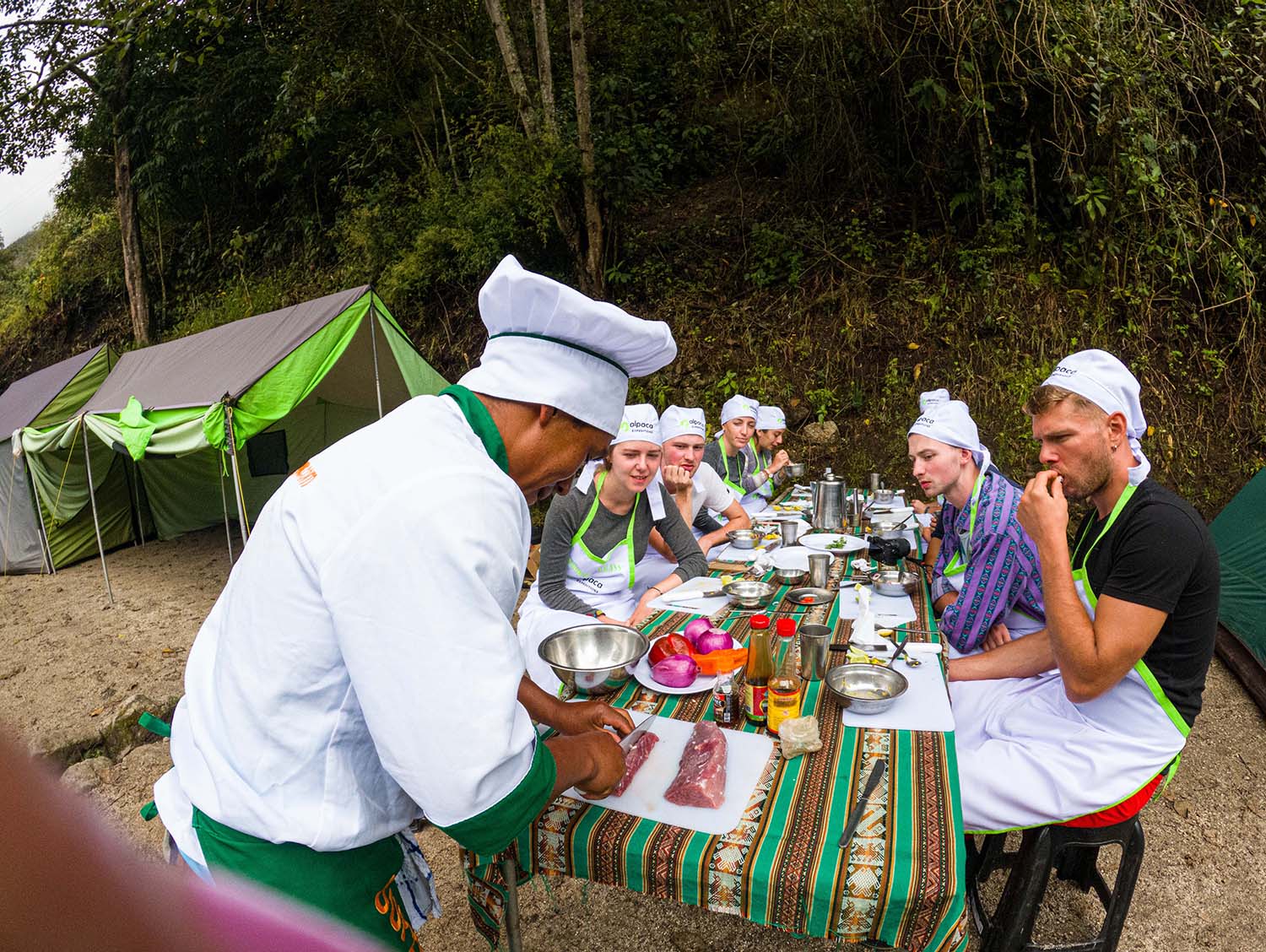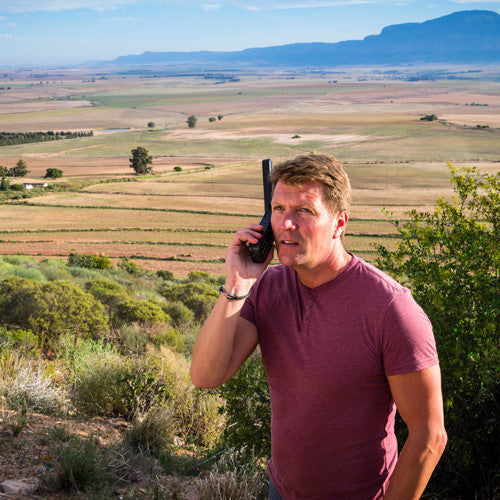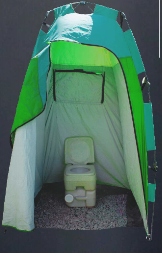Lares Trek to Machu Picchu
4 Days / 3 Nights
Lares Trek to Machu Picchu: A particularly special adventure, the Lares trail takes the road less traveled to Machu Picchu.
The Lares Trek offers a unique and rare perspective into the true Andean lifestyle, as trekkers walk through remote villages and visit family homes for an intimate look into the culture and customs of the locals. Trekkers will also get to soak in famous natural thermal baths, trek past waterfalls, and visit the salt mines that make up a significant portion of the local economy. And, of course, witness the sacred ruins of Machu Picchu!
Highlights: Natural hot springs, striking salt mines, remote villages, connection with locals, Machu Picchu
Considerations: Since you are hiking in the Alpine, this is one of our coldest treks. Please be prepared with lots of warm layers.
Difficulty: While all treks in the Andes are challenging, this hike moves a bit slower than others making it a favorite of our youngest hikers.
Season: Year-round.
Lares Trek to Machu Picchu 4 Days / 3 Nights
Lares Trek to Machu Picchu 4-Days Trip Details
-
This four-day Lares Trek to Machu Picchu includes 2.5 days of alpine hiking and local village visits.
Soak in Calming Hot Springs: Before hitting the trail, you can prepare your muscles for the challenge with a soak in rejuvenating and relaxing thermal baths. This is the perfect way to prepare your body and kick off your trek.
Learn About The Local Villages On Our Most Cultural Trek: The beauty of the mountains is parallel to the generosity of the people you will meet on this marvelous cultural tour. While all treks in the Andes are challenging, this hike moves a bit slower than others making it a favorite for families with young hikers.
The great Lares trek lets you interact with small remote local communities in the Andes. You can meet local people and participate in their traditional Peruvian lifestyle.
Visit Historical Peru Salt Mines: The Lares Valley’s incredible landscapes, views, flora, and fauna will leave you speechless. Plus, the hike itself is an exciting challenge to complete. During your Lares Trek, you will also visit the Salt mines in Maras, where you will see the traditional way the locals still get salt to this day. You’ll even have the option to purchase some to take back home.
Explore Machu Picchu: Alpaca Expeditions’ Lares Cusco trek package will end with a night in a hotel in Aguas Calientes. Then you’ll wake up for an early morning beautiful train ride to visit Machu Picchu for your guided walking tour on the 4th day. This tour of Machu Picchu really is the best way to finish your amazing adventure with Alpaca Expeditions.
-
Itinerary Overview
- Day 1: Thermal Baths – Kiswarani Waterfalls – Camping (Trekking Distance: 10 km/ 6.21371 miles)
- Day 2: Condor Pass – Cancha Cancha Village – Camping (Trekking Distance: 14 km/8 miles)
- Day 3: Huaran – Maras Salt Mines – Train to Aguas Calientes – Hotel (Trekking Distance: 9 km /6.2 miles)
- Day 4: Machu Picchu Day (Typical time back to Cusco: 8:30PM)
Highlights
Itinerary
-
Day 1: Soak in Hot Springs and Reach Your Campsite Under The Falls
Cusco – Famous Thermal Baths – Kiswarani Waterfall Campsite
We’ll pick you up from your hotel at 5 a.m. to begin the famous Lares Trek to Machu Picchu. Pick up locations can be from any hotel, condo, or apartment located in the cities of Cusco, Urubamba, Huaran, or Pisaq. It’ll be a three-hour drive along the beautiful landscape of the Sacred Valley and through the Andes. Once we arrive at the Lares Hot Springs site, you’ll have your first breakfast accompanied by views of the Andes Mountains. Then, you’ll enjoy the hot springs, which are divided up between various pools ranging from freezing to hot water. They’re all composed of pure volcanic water, which is medicinal and considered to be good for your bones, stress, muscles, and headaches.
After soaking in the pools for a while, you’ll drive 20 minutes to the trailhead. Punta Carreteraat 3,300m / 10,827 ft above sea level. This is where you’ll meet up with your horses, riders, and give them your duffle bags. After, you’ll begin your expedition to Machu Picchu with a two-hour gradual uphill hike. That’s when we’ll reach our lunch spot at the first village called Kiswarani. This section of the hike is considered the potato valley area, because people farm many varieties of organic potatoes. Your guide will also point out some indigenous medicinal plants growing along the way. Then, we’ll arrive at our lunch spot where you’ll enjoy your first homemade meal prepared by our trekking chef.After lunch, our horsemen (llameros) will do a ceremony with llamas showcasing these beautiful animals. Llamas were considered sacred to the Incas and fundamental to their economy. Our llameros will introduce you to these animals and discuss their importance and why owning one was a sign of privilege. Today they’re disappearing due to a variety of different reasons. We hope to continue the tradition of the Incas and give some llamas work. We do this to support the community that helps protect them. Llamas are pleasant to walk with and are friendly animals. Just don’t get too close, they might try to kiss you.
You’ll also have time to explore the village and visit some local homes. You can learn about the lifestyle and ancient traditions of the local people. If there is time, we’ll visit the schoolhouse where the kids still speak their native language Quecha. You may also bring toys, notebooks, or school supplies to distribute. Perhaps you may even teach them a few words in English. It’ll be another two hours of gradually uphill hiking until we arrive at the campsite. There you’ll be welcomed by our trekking staff, who’ll have your tents set up. We’ll enjoy some hot drinks as the sky darkens and the stars start appearing. Finally, you’ll enjoy a lovely dinner prepared on-site. If you want to keep star-gazing, you may stay up for a while longer or if you’d rather you can go to your tent.
Trekking Distance: 10 km/ 6.21371 miles
Camp Elevation: 3,850 meters / 1,2631 ft
Weather: Cold -
Day 2: Summit Condor Pass and Explore a Traditional Andean Village
Quiswarani – Condor Pass – Cancha Cancha Village
Today you’ll be woken up around 5 a.m. with our service of hot drinks. You’ll have spectacular views of the colorful lake and the valley of Kiswarani. You’ll see the local people will already be up and about, taking their llamas and alpacas out to graze. Breakfast will be served once you have finished packing your gear. Then we’ll fill up our water bottles, organize snacks, and you’ll begin your expedition to Machu Picchu. It’ll be a three or four-hour climb to get to the summit of the mountain. This pass is called Pachacute or Condor Pass. We’ll zigzag our way up to compensate for the steep uphill. The views of the area are breathtaking, you’ll see lakes, waterfalls, llamas, and alpacas. We’ll have an emergency horse to ride in case you get tired and can’t walk anymore. Once you arrive at the Condor Pass, you’ll be above the clouds and above the mountain peaks. Then you’ll be able to enjoy the astounding 360-degree view. In front of you will be the beautiful mountain of Pitusiray, which is at 5,700 m/ 18,700 ft high. Then there’s the Condor pass at 4,680 m/ 15,354 ft. Afterward, we’ll enjoy a hot drink service that your porters will carry with them. We’ll take advantage of some phenomenal photo opportunities and then start our descent.
You’ll then begin the one hour downhill descent towards El Mirador (Vista Point), where you’ll enjoy lunch. There’ll be some llamas grazing nearby. After lunch, you’ll hike the last three hours downhill. There’ll be fantastic views of many lakes, llamas, and alpacas, before arriving at your campsite. Which is the village of Cancha Cancha, the only village that does not have modern technology. Located at (3,750 m / 12,303 ft), where people still practice original Inca traditions. In this Incan village 85 percent of the houses are still built by ancient construction methods. Including houses made of stone and grass-thatched roofs. Unlike any other village in the Lares Valley, this village has no electricity or cars. Here, you’ll not only enjoy the wilderness but your porters will also set up your tents. You’ll have some time to meet with the local children. We provide them with food and school supplies. We invite our travelers to share this support in the education and the health of this native village. You can bring anything you would like to give to these Quechuan-speaking children that they could use for school or home. When you’re done, your guide will take you to one of the local family’s houses. Here you’ll learn about the lifestyle of the locals. You’ll learn about the traditional hand-woven textiles made of llama and alpaca wool. In the evening you’ll enjoy hot drinks and dinner.Walking Distance: 14 km/8 miles
Elevation Gain: 830 meters / 2,723 ft
Camp Elevation: 3,750 meters / 12,303 ft
Weather: Cold -
Day 3: Visit The Maras Salt Mines And Reach The Sun Gate
Cancha Cancha – Huaran – Maras Salt Mine – Ollantaytambo – Aguas Calientes
Our porters will wake you up with a hot drink and you’ll have some time to pack your bags and enjoy breakfast. After breakfast, you’ll have time to explore the village and visit the local elementary school. Here they still teach the ancient Inca language, Quechua. Once you’re ready, you’ll begin the last leg of your Lares trek. It’ll be four hours of walking downhill along this lovely path. You’ll pass by more llamas as well as alpacas.
We’ll pass by farms where they grow potatoes, fava beans, and many other traditional crops in traditional Incan style. You’ll have the chance to learn about Peruvian agriculture. You’ll learn from people who still farm by hand with traditional Inca farming tools. Now, we’ll start to descend to the warmer area of the Sacred Valley. You’ll start to feel the changes of the micro-climate and start seeing crops that are different. Around the Sacred Valley people farm corn, quinoa, kiwicha, peaches, avocados, and other types of fruit. This area has a lot of Inca history and you’ll end your tour at the Sacred Valley village of Huaran that sits at 2,700 m / 8,858 ft. Here you’ll say goodbye to your horses, horse riders, chef, and porters.
From Huaran, we’ll catch an Alpaca expeditions van and make the short drive into the valley to visit the Salineras salt pans, in the town of Maras. Here, at 11,000 feet above sea level a saltwater spring gushes forth and spills down the side of the mountain. Over 3,000 small evaporation chambers have been created and look as if they’re tumbling down the mountainside. These have been in use since pre-Incan times. The salt is said to have healing properties because it’s filled with natural minerals, some of it even comes out pink. Local families each own one of these pans and make their living supplying salt to the towns around the area. There is a small shop on-site if you care to take some salt home with you.After visiting Salineras, we’ll climb aboard the Alpaca Expeditions van for a 45-minute drive. This’ll go along the Sacred Valley to Ollantaytambo. Ollantaytambo is the only living intact Inca village. It still has many Inca water channels, houses, and walls. Your guide will take you around to view this small town until it’s time for dinner, which will be at a local restaurant. We’ll then catch the 7 p.m. train for Aguas Calientes, the town below Machu Picchu (train times may vary, depending on availability). Upon your arrival in Aguas Calientes, you’ll check-in to your hotel and relax.
Walking Distance: 9 km /6.2 miles
Aguas Calientes Elevation: 2,000 m / 6,562 ft
Weather: Cold in the morning, warm in the afternoon. Watch out for mosquitoes this day.
Accommodations: inti punku (or similar) -
Day 4: Explore Machu Picchu and Start Trip Back To Cusco
Machu Picchu – Ollantaytambo – Cusco
Day four is the most magical day because you’ll finally experience Machu Picchu. You’ll wake up early to catch one of the first buses (around 5:30 a.m.) for the 30-minute ride up to Machu Picchu. You’ll see the stunning Sunrise over the ruins. Your guide will take you for an informative two-hour tour. Afterward, you’ll have time to explore on your own and hike Huayna Picchu if you choose to (this is a separate entrance ticket and costs $75 per person). In the afternoon, you’ll catch a two-hour train back to Ollantaytambo. Then you’ll travel by bus back to Cusco, where we’ll transfer you to your hotel.
Weather: Warm and humidNote:
- If you want to stay an extra night in Aguas Calientes, please let us know in advance. We can adjust your train tickets and arrange for a hotel if you would like us to help.
- Rangers do not allow people to carry large backpacks inside Machu Picchu. Only day packs are allowed inside.
- No trekking poles are allowed in Machu Picchu.
- Snacks and water are allowed, but they must be inside your backpack.
Inclusions
-
Included
- Professional Guides: All of our guides studied English and tourism at Cusco National University. They all grew up in the Cusco region, and love teaching others about their heritage.
- Briefing: The night before your Lares Trek to Machu Picchu, you’ll come to our office at 6:30 PM for your briefing with your trekking guide. You’ll receive your duffel bag for your items. These must include your sleeping bag and air mattress. (ours weigh 2.5 kg and 1 kg respectively). All duffel bags will be carried by your porters and will only be available at your campsite each day (morning and evening). Any items that are needed while hiking should be packed in your daypack.
- Porters & Horsemen: We include a personal porter who is responsible for carrying your duffel bag containing your items. There is no additional fee for this. Your duffel bag will be provided at your briefing the night before. This is to be filled with the things you’ll need for the next night and day. You will not have access to your duffel bag until you arrive at your evening campsite.
- Emergency Horse: All of our alternative treks include an extra horse for our clients to use if they need a break from trekking.
- Hotel: The trek will include two nights of camping. One night close to local villages and one night in a hotel in Aguas Calientes, the town below Machu Picchu. We include a 3-star hotel, typically at Inti Punku (or similar) if available. Your booked hotel will be on your final invoice, and upgrades are always possible.
- Transportation: You’ll have transportation included for this trek. You’ll be picked up directly from your hotel around 4:30 a.m. ( unless you are staying in Ollantaytambo, then earlier) and brought to the trailhead to begin your trek. Hiking will end on day three, and you’ll head to Ollantaytambo. Once your hike is over, you’ll take the train to Aguas Calientes where you’ll spend the evening in a hotel. Your departure and return train to Aguas Calientes as well as back to Ollantaytambo will be on the Expedition Class Train. Your return train from Aguas Calientes to Ollantaytambo can be upgraded to the Vistadome Class Train for $75 per person. Once you arrive at the train station, you’ll be brought back to your hotel in Cusco. Also included is your round-trip bus ticket from Aguas Calientes to Machu Picchu.
- Equipment: Alpaca Expeditions has the best equipment. We use Eureka Timberline 4 person tents that are shared by only two people. You’ll have a spacious dining tent to enjoy your meals in.
- Food: The Alpaca Expeditions chefs cook delicious meals that many previous trekkers have loved. We honor all food restrictions, so be sure to add any that you have on your booking form and let your guide know at your briefing. Food is typically all served family-style. You’ll enjoy breakfast, lunch, and dinner each day for the trek along with a happy hour of tea and snacks. A snack will be provided each morning for you to enjoy along the hike. Your last meal with your chef will be after breakfast on day four. Lunch on the last day is not included.
- Water: Beginning from your first lunch until your last breakfast, Alpaca Expeditions will supply all the water needed. This water is boiled, filtered, and then cooled before distributing. You must bring personal water bottles and or a camelback. We recommend carrying about 3L worth. You’ll be able to refill your water at each meal.
- First Aid: Every Alpaca Expeditions guide has received training in first aid from a physician. We conduct mandatory training sessions every February for all Alpaca Expeditions employees. Your tour guide will always have a first-aid kit for basic medical situations (traveler´s diarrhea, cuts, scrapes, etc.) and oxygen. We’ll get you off the trail as quickly and comfortably as possible if needed.
- Extras: We believe it’s the attention to small details that separates us from other tour companies. Every trekker receives a small pillow to sleep with, a foam mattress for insulation, a day pack cover to protect their things while hiking, and a rain poncho.
- Satellite Phones: Our top priority will always be the safety of our clients and our team. While all our guides are prepared and trained to deal with issues clients have on the mountain. Being a phone call away from any doctor, hospital, or friend helps everyone feel assured that they’re safe. Radios, which all our guides have, are limited in how far they can reach. So, Alpaca Expeditions has added Satellite Phones to every trek. Every guide will have a fully charged phone that can be used anywhere on the mountain. And they can be used by our clients for non-emergencies as well. While they’re not cheap to use, they are available.
-
Not Included
- Rentals: Every trekker needs a sleeping bag when camping. Inflatable air mattresses and walking sticks (with rubber tips) are optional but encouraged. If you don’t want to bring any of the above, they are all available for rent:
Sleeping Bag: $25
Inflatable Air Mattress: $20
Walking Sticks (Pair): $20 - Huayna Picchu: Huayna Picchu is the mountain that stands next to Machu Picchu. It’s a 45-minute hike to the top. Going back down is quite steep if you’re scared of heights. You would do this after your tour of Machu Picchu. The cost is $75. Arrangements need to be made at least one month in advance due to popularity.
- Rentals: Every trekker needs a sleeping bag when camping. Inflatable air mattresses and walking sticks (with rubber tips) are optional but encouraged. If you don’t want to bring any of the above, they are all available for rent:
Price
-
The Lares Trek can leave any day of the week, 12 months a year.
-
Group Tour:
$650 per person
A group tour means that it is open for other trekkers to join you. This means that your group will have varying hiking and fitness abilities. All our guides are experts on how to keep the trek moving and happy no matter how fast you hike.
-
Private Tour:
Private tours are available and priced by party size.
2 Trekkers: $940 per person
3 Trekkers: $890 per person
4 Trekkers: $850 per person
5 Trekkers: $800 per person
6 Trekkers: $750 per person
7 Trekkers: $700 per person
8 or more Trekkers: $650 per person* All our tours are priced in US Dollar.
-
Accommodations:
Inti Punku
This tour includes 2 nights camping and 1 night in a basic three star hotel, Inti Punku. Rooms all include private bathrooms, hot showers and wifi. Prices are based on a shared room (Double, Matrimonial or Triple available) and single rooms are available for a $30 US supplement (all solo travelers are given a single room). Other hotels are available upon request at the prices listed below.
Single Room: +$30 pp
La Cabana: +$40 pp shared (+$110 for a single)
Casa Andina: $40 pp shared ($110 for a single)
El Mapi: +$70 pp shared (+$170 for a single)
Book on your own: -$30 pp -
Student Discount: $25 off per person
Student discounts apply to anyone who has a valid UNIVERSITY STUDENT CARD at the time of the trek or who is 17-years-old or younger. For those using a University Student Card our under 17-years-old, we need to see a copy of their card or passport at the time of booking to receive the discount.
Please send all to info@alpacaexpeditions.com.
More Information about STUDENT CARD
-
Additional Items:
There are several optional upgrades you can include in this trip. Below is a quick list of prices, but check our Overview section for more details.
Huayna Picchu: $75 per person
Vistadome Train (one way): $75 per person
-
{{ day }}
available
few remain
contact us
{{ msg.title }}
Travel Info
-
Getting to Cusco
The airport in Cusco currently is only for domestic flights. All international travelers by plane must disembark in Lima and go through Customs. Even if your flight to Cusco is the same day by the same airline carrier.
The best way to get to Cusco is by air, and there are several options in airlines. LAN tends to be the most expensive but has the most options and flights. Expect delays or flight cancellations. Due to the high altitude of Cusco, it tends to be difficult to land. Any acclimate weather will stop air traffic. Bus travel is always available, while the trip can be long the buses are very well maintained and comfortable. This option is strongly encouraged if coming from a city closer to Cusco, like Puno. Lima buses will take about 20 hours to arrive.
-
Luggage Storage
Any extra luggage you have with you can be left safely in Cusco. Your hotel is an option as well as with us at the Alpaca Expeditions while you trek. We’ll store your luggage on the morning of your trek and return it once you’re back in Cusco. Make sure your bags have tags on them, so they’re easy to locate.
-
Daypacks
Alpaca Expeditions doesn’t provide daypacks, so you need to bring your own. Try to keep your daypack light while trekking. Machu Picchu doesn’t allow packs larger than 25L. You’ll need to check your bag at the entrance if it doesn’t meet the size regulations. Checking your bag is inexpensive but often has long lines.
-
Altitude
As soon as people book their trip to Peru, they start wondering about altitude sickness. The air at high altitudes contains less oxygen than at sea level and forces your body to work for the oxygen it needs. Over several days at high altitude your body adjusts to the lower amount of oxygen in the air. For this reason, we always recommend spending at least two days in Cusco before beginning any trek in the Andes.
With altitude sickness, you may first feel like you have the flu or a hangover. You may have a headache, tiredness, loss of appetite, nausea, vomiting, dizziness, trouble sleeping, or trouble breathing during exercise. If any of these effects become severe, please contact our office, and we’ll help you get to a doctor.
We always recommend easing into activity slowly, allowing your body time to adjust. Drink plenty of fluids such as water or coca tea. Coca tea has been used since ancient times to help prevent altitude sickness. Avoid drinking a lot of alcohol and coffee, they’ll cause you to become dehydrated. Avoid smoking. Smoking makes it more difficult for your body to get oxygen. Avoid sleeping pills. They may cause shallow breathing at night, making it more difficult for your body to absorb oxygen while you sleep.
Remember, the trek to Machu Picchu is not a race. Even those in the best shape will suffer from altitude sickness if they race to the top. Go slow, it’ll give your body time to adjust to the elevation. Your healthcare provider may prescribe medication such as Acetazolamide and Dexamethasone to help with altitude sickness. Start the medicine two days before you get to high altitude and continue to take it while you are at high altitude. You must remember that this is your holiday and don’t want to stress out about getting sick. If anything does happen and you get sick, let your guide know right away. Alpaca Expedition guides are trained to help you get through it.
-
Weather
Typically, the dry season in Cusco is from April through October. always be prepared for all temperatures and rain. No matter what month you are doing the trek, make sure that you have rain gear that includes a waterproof jacket, pants, poncho, and waterproof gloves. Many people forget about gloves but being cold and wet makes hiking very unpleasant.
Also, be ready for four seasons. Treks in the Andes involve various microclimates, and you’ll need to be prepared for each one. Layers are always key since they are easy to adjust to different temperature changes. Be prepared with a warm packable down jacket since the evening will be cold.
As far as Lares is concerned, this is one of our colder treks. We’ll help you sleep with insulated warm bottles to place in your sleeping bags but remember your extra layers to keep cozy.
-
First Aid
Every Alpaca Expeditions guide has received training in first aid from a physician. We conduct mandatory training every February for every Alpaca Expeditions guide. When guiding you, they’ll have with them a first aid kit for basic medical situations.
In case you feel you can no longer complete the trek, they’ll figure out the safest and quickest way off the trail. You’ll have a member of the team escort you every step of the way until safely with a doctor. When you’re feeling up to it, we’ll make sure that you still visit Machu Picchu and re-connect with your group. This way you can finish your trip, traveling comfortably by train.
We ask that all clients let your guide know of any chronic medical issue you may have before the trek. We want to be prepared to help if something happens.
-
Travel Insurance
To protect your travel investment, we highly recommend the purchase of travel insurance. Getting travel insurance before you leave home is strongly encouraged and very easy. We work with a great agency in the United States, they’ve helped to make it easy and affordable. What an excellent way to protect yourself while you are visiting Peru.
If interested in booking through our trusted partner Ahart, Frinzi & Smith CLICK HERE.
-
Environmental Impact
Alpaca Expeditions uses biodegradable soap and transports all our garbage back to Cusco. Our porters are trained to look after the trail and pick up any waste. We also use environmentally-friendly chemical portable toilets that allow us to pack waste out. We believe in leaving no footprint behind.
-
Community
Alpaca Expeditions is proud of the work we do for our community, as this is the main focus of our company. We’ve worked with villages directly to help supply them with the needs their families were missing. We’ve supported local schools by giving them computers and books. Alpaca Expeditions also sponsors a teacher at the village where most of our porters come from.
We buy all our food from local farmers and markets. We provide English classes for all our team: guides, porters, chefs, and drivers. We’re also building a house for our porters. Giving them a safe and comfortable place to stay before and after our treks.
Twice every year we bring our porters and their families to Machu Picchu. The men and women who work tirelessly have never visited the Lost Citadel of the Incas. So that makes this trip our favorite to-do. It’s an honor to show them this place.
We’re always looking to do more for our partners. Please let us know about your ideas and we’ll work to help.
-
Personal Porter Included
All of our camping treks include porters, who are responsible for carrying and setting up all equipment. They’ll additionally carry the duffel bag you receive at your briefing the night before your trek. No duffel bag can exceed 7kg/14lbs and must include your sleeping bag and air mat. Alpaca Expeditions gives each porter a proper uniform, salary, and insurance. They’re the backbone of our company.
Packing List
-
ESSENTIALS:
- Passport
- Valid, STUDENT CARD (if you booked as a student)
- Immigration Card (given on the plane as you enter Peru)
- Good daypack (the smaller, the better)
- Water storage: Water reservoir like Camelbaks are encouraged – but enough for at least 2-3 liters.
- Comfortable hiking boots (lightweight with good soles)
-
FOR YOUR DUFFEL:
Remember you are packing for 2 nights of camping and 1 night in a hotel. Porters will carry up to 8 kg of your personal items. This must include your sleeping bag and air matt (if you bring/rent one). From us these two items weigh 3.5 kg.
- 2 wicking t-shirts
- 2 hiking pants
- 4 sets of undergarments.
- 3 sets of hiking socks
- 1 Fleece
- 1 Warm, down jacket: this trek includes 2 cold nights camping
- 1 Rain jacket and pants
- 1 sun hat
- 1 wool hat
- Headlamp: essential
- Waterproof gloves (even if they are ski gloves, take them)
- Comfortable shoes for camp
- Walking boots
- Waterproof jacket/rain poncho
- Quickdry towel. We provide small ones, you might enjoy something a little larger.
- Small bottle of soap: we provide warm water each day to clean – might make you feel fresh if you had a little soap.
- Battery Charger: There is no place to plug in while trekking!
- Large plastic bags: to help organize and keep clean from dirty.
- Sleeping bag: Recommend down bags for -10C at least
-
TOILETRIES:
- Sunscreen
- Face moisturizer
- Bug spray
- Handsanitizer
- Wet wipes
- Toothbrush and paste
- Toiletpaper
- Personal medication
- First aid kit: band aids, moleskin, etc.
-
INSIDE YOUR DAYPACKS:
Daypacks can be any size for hiking, but we always recommend the smaller, the better. Inside Machu Picchu, no bag larger than 25L will be allowed in. If larger, you will need to store outside citadel gates.
Passport Valid, STUDENT CARD Immigration Card (given on the plane as you enter Peru)Good daypack (the smaller, the better)Water storage: Water reservoir like Camelbaks are encouraged – but enough for at least 2-3 liters.Comfortable hiking boots (lightweight with good soles)
- Water: we supply clean water at each meal. You are responsible for your first morning of water only as we won’t have time to filter water until your first lunch.
- Sunhat
- Rain gear
- Fleece
- Camera
- Music (IPhone)
- Handsanitizer
- Toilet paper and small plastic bag for waste
- Extra Money for Souvenirs, Drinks & Tips
Porters & Horsemen
-
The Lares Trek will include a combination of porters and horsemen to help carry all the equipment and bags needed. We also include an extra emergency horse that can be used at any time if you need a break from hiking.
Our Alpaca Expeditions porters, who we lovingly call the Green Machine, are the pride and joy of our company. We’re dedicated to making a difference in their lives and their family’s life. For that, we’re rewarded with the hardest working team in the mountains.
-
Alpaca Expeditions Porters:
Raul Ccolque Ccolque, the owner and general manager of Alpaca Expeditions, worked as a porter from 2000 to 2003. While he saw some companies treating their porters better than others, he felt there was not enough done for them and their families. We couldn’t have a company without our porters, and because of that we want them to be part of our family.
Our porters range from 18 years old until 55 and come from different villages in the Cusco region. We employ approximately 250 porters from the following communities:
- Comunidad Wakatinku 25 porters, located at 3800 meters
- Comunidad Llullucha 20 porters, located at 3700 meters
- Comunidad Choquekancha 25 porters, located at 3400 meters.
- Comunidad Pumapunko $ 25 porters located at 3700 meters
- Comunidad Kachin 25 porters located at 3700 meters
- Comunidad Anparaes 25 porters located at 3500 meters
Quechua is their main language and farming is their main economic activity. Being an Alpaca Epeditions porter is a second income for them.
-
Our Promise to Our Porters:
We clearly understand that we wouldn’t be successful without our team of porters. They’ve promised us that they’ll continually work hard to make sure each trekker has a magical journey. In return, we made a promise to them that we’ll do what we can to make this difficult job a little less daunting.
As we explained earlier, most of our porters live in a village outside of Cusco – typically 2 to 4 hours away. We cover all entrance fees (45 soles – $15 US per porter) and transportation to and from the trek for our porters, separate from their salary. They’re paid promptly after the trek eliminating the need to travel back to Cusco before heading home. Unfortunately, this is not common. They receive better wages, health insurance, and all their equipment for free, including great food to eat. We make sure they have a comfortable bed and a nice room to sleep in before (and after if needed) the trek. We visit their communities and provide needed supplies to their families like toothpaste, toothbrushes, soap, and books for students. This is just the beginning for us, and we’re always looking for ways to do more.
-
How much does the Alpaca Expeditions Porter Carry?
While the government allows each porter to carry up to 25kg, we keep our limit at 20kg. Each porter will carry up to 15kg from the company and 5kg of their stuff. That’s why it’s so important to keep your duffel light and not exceed our allowed 7kg. You’ll see other companies carrying more than the allotted weight – we’ll not allow our porters to carry this burden.
-
Keeping them Comfortable
Every year Alpaca Expeditions provides a new sleeping bag and sleeping pad for each porter. Our jackets are all lined and the boots that we provide are all waterproof.
-
What do the Porters Eat?
Our porters will eat the very same amazing meals you have. Our Alpaca Expeditions chef buys enough food to cook for all our trekkers and porters. We serve large portions, and none of it is wasted. Whatever is left over will go directly back home to the families of the team for them to enjoy themselves.
-
Helping Their Families
All our porters are Quechua language speakers who come from farming villages. They take advantage of the seasons to grow their crops and Alpaca Expeditions helps them and their community. We have different ongoing projects and hope to add many more. Some of the projects we have completed or continue doing are:
Every three months, we take a kit of toiletries to Wakantinku elementary school for 204 Quechua speaking children. They range from 3 – 12 years old from kindergarten to 6th grade. When we arrived at this village for the first time a few years ago, kids had trouble keeping up with daily hygiene. We make sure they always have toothpaste, toothbrushes, soap, and hand sanitizer.We planted more than 3,000 Queuña trees (Andean Polylepis), in the community of Wakatinku to reforest their village. This tree will be more sustainable than others they have used and will eventually be a fertilizer for their village. We cover the salary of a full-time teacher in the High School of Wakatinku every year to teach math, art, and English. This teacher has done great work and helped to graduate the first class from the village.
Every February, we invite our porters and their families to come with us to visit Machu Picchu. Last year we went with families from Wakawasi village, a community we visit on the Lares Trek. It was their first time in the ruins. We plan on doing this trip every February with new families to help them enjoy their history.
In October, we helped celebrate the end of the school year with 17 students and their parents. Week took them for a trip through the Sacred Valley and Machu Picchu. This 2-day trip followed the same itinerary that our clients enjoy.
Often our clients have asked how they can help. Some Alpaca Expeditions trekkers raised money back at home to buy some computers to donate to a local village. We matched their donation and went together to donate computers to the school in Wakatinku village. Being their first time donating computers, this was something new. We did donate more computers the next year as well.
We’re working with a local clinic to provide dental care and skin examinations for the children of the community.
We bought land in Cusco that is being constructed to create dormitory classrooms and teaching kitchens for our team. We created this for our porters outside of Cusco to have a place to sleep before their treks. We’ll have free English, computer, and cooking classes for our team and their families to use.
Those are just some of the projects we’ve done and continue to do. We’re a small local company here in Cusco, who promises to be as dedicated to our team as they are to us. We’re lucky to have the best porters in the region. We feel it’s necessary to make sure they’re healthy, stable, and capable of providing for their families. -
THE GREEN MACHINE
Another highlight of booking with Alpaca Expeditions is getting top equipment and probably the best food you’ll eat while in Peru.
-
Equipment
Every camping tour includes a spacious four-person tent that will be shared by only two people so you can spread out a bit. These are Eureka Timberline all-season tents. Our rentals are top of the line: Black Diamond Adjustable Walking Sticks and Thermarest Luxury Air Matts. Sleeping Bags rented from us are mummy-style down bags and rated for 15C and liners are always included.
For more information on our equipment, CLICK HERE.
-
Food
Every trek includes a chef trained in culinary school. They’ve learned the skills of mountain cooking. You’ll enjoy a full breakfast, lunch, and dinner served hot. We also include Happy Hour with snacks and some hot tea before dinner. The key to feeling good on a trek like this is eating well and staying hydrated.
Meals are all served family-style, large plates for everyone to take what they like. All food restrictions are honored. It doesn’t matter if you’re vegetarian or gluten-free, you’ll always be well fed. -
Water
Alpaca Expeditions will provide water at every meal. We’ll boil, filter, and cool all water before distributing it to our clients to ensure that it’s safe for drinking. Because of this process, you do need to provide water for yourself the first morning of your trek. We won’t have a chance to get you clean water until lunch on Day 1.
Always begin your hike with 2-3 liters of water – so make sure you have a large enough water bottle or camelback to store this.
Lares Trek to Machu Picchu 4D/3N
Please fill in our BOOKING FORM carefully with your correct personal details.
The Alpaca Difference
Alpaca Expeditions is a 100% peruvian, indigenous owned company. Started by Raul Ccolque, a former porter and tour guide, Alpaca Expeditions separates ourselves by our dedication to both our customer and our team. We work very hard to make sure that all our clients needs are taken care of throughout the tour with us. At the same time, we never forget about our brothers and sisters working tirelessly for us to make all of this possible. Responsible and sustainable tourism that gives as much to our community as to our clients.
Meet the AE Trekking Team!
Everyone on the Alpaca Team is from Cusco region, living the traditions and history they share with you while on one of our tours. Our guides are all graduates of university studying tourism, history and english. Our chefs are trained every February by a professional cooking team learning new meals, adding varieties of entrees for all types of eating. And all our porters are from HUARQUI, HUACAHUASI, PATACANCHA, QUISWARANI, CANCHACANCHA, QUEYUPAY, UMACHURCO and CCACCACCOLLO villages, very often working this job on top of maining their farms back at home. Most of our team has been with us for years, as we have the most loyal, hard working, happy employees in Cusco. We know how lucky we are to have the best team trekking and you will immediately fall in love with all the men and women who call Alpaca Expeditions their home.
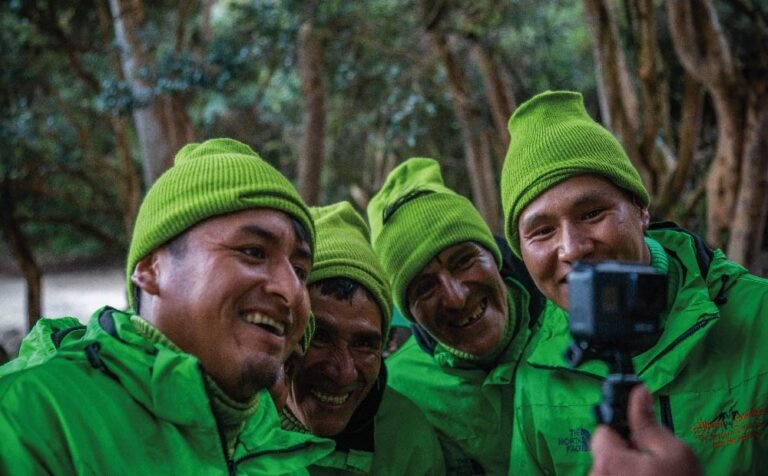
AE súper porters
Our Porters represent the Peruvian people, both men, and women who are at the heart of our...
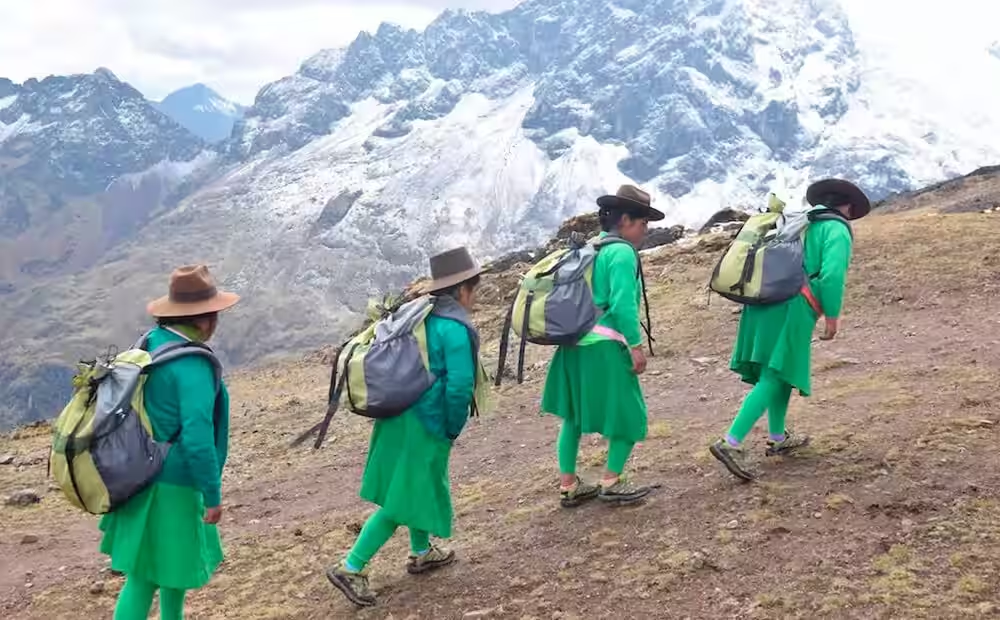
Equality Matters
Alpaca Expeditions aims to promote gender equality and empower women, hiring first Peru Wo...
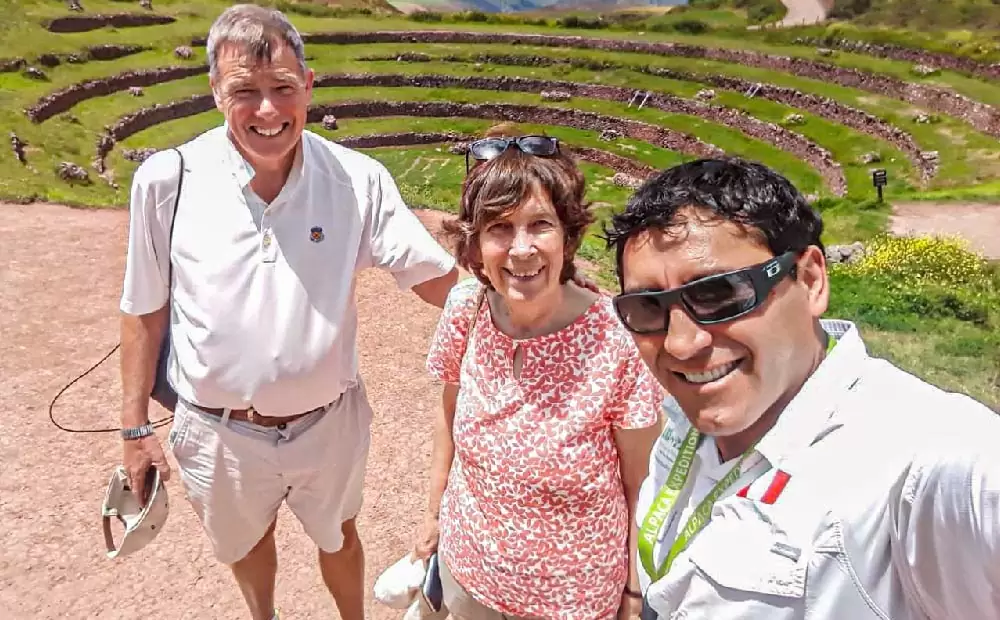
Our Guides
Travelling and trekking along the mountains is one of the best activities in the World. Co...
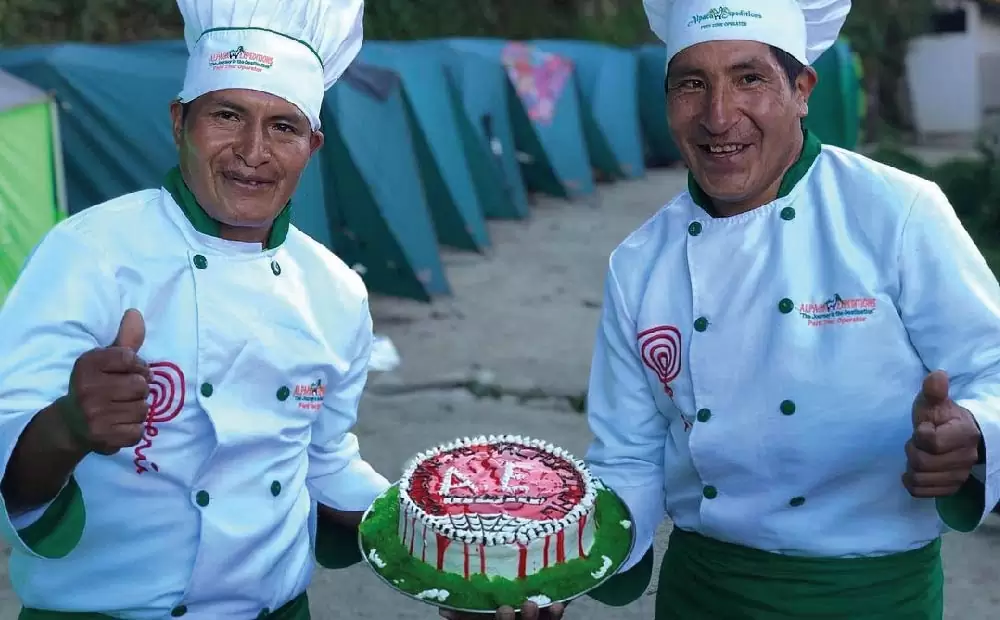
Our Chefs
Trekking along the mountain on your way to conquer Machu Picchu is a once in a lifetime ex...
What do we do for our porters?
Alpaca Expeditions would not be where we are today without these hardworking men and women. We could not imagine a harder job and our team does it smiling. We do our best to thank them for their hard work and loyalty by doing as much as we can to make their lives and their families lives better. All our porters receive all their equipment for free from warm winter hats to proper hiking boots. They sleep in proper tents and are given warm sleeping bags for night. They enjoy the same food we serve our clients and all leftovers are donated to their families. We visit their villages with doctors and dentists, donate school supplies and sports equipment. And our favorite time of the year is when we bring a group of porters and their families to Machu Picchu to visit the ruins for the first time.

AE súper porters
Our Porters represent the Peruvian people, both men, and women who are at the heart of our company. It is not possible to ...

Equality Matters
Alpaca Expeditions aims to promote gender equality and empower women, hiring first Peru Women as Porters opening the door ...
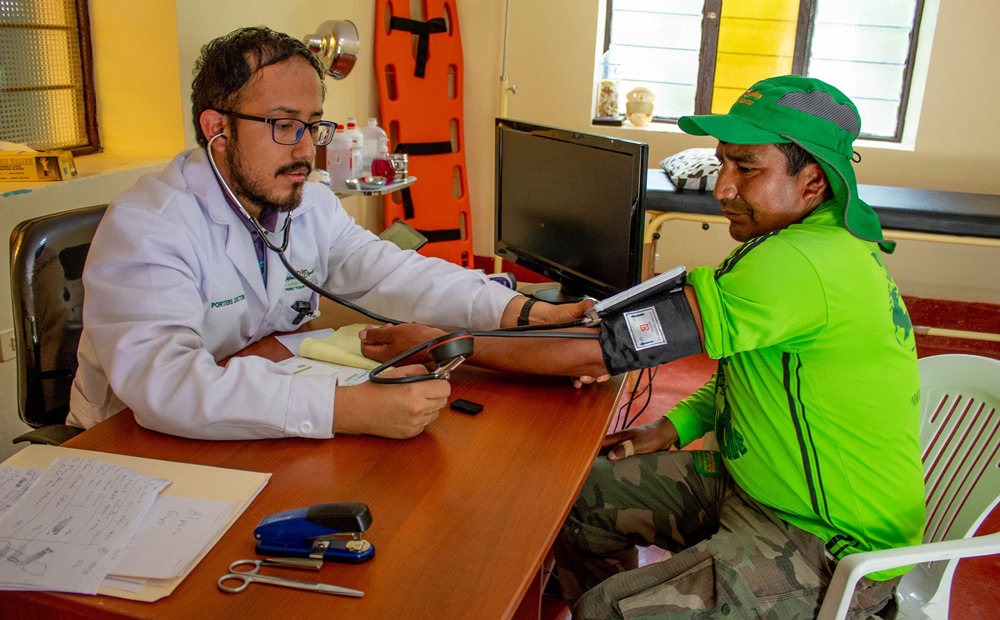
Free Medical Assistance to Porters
In 2019, we hired our first Alpaca Expeditions Medical Doctor to help tend to our guides, drivers, chefs…
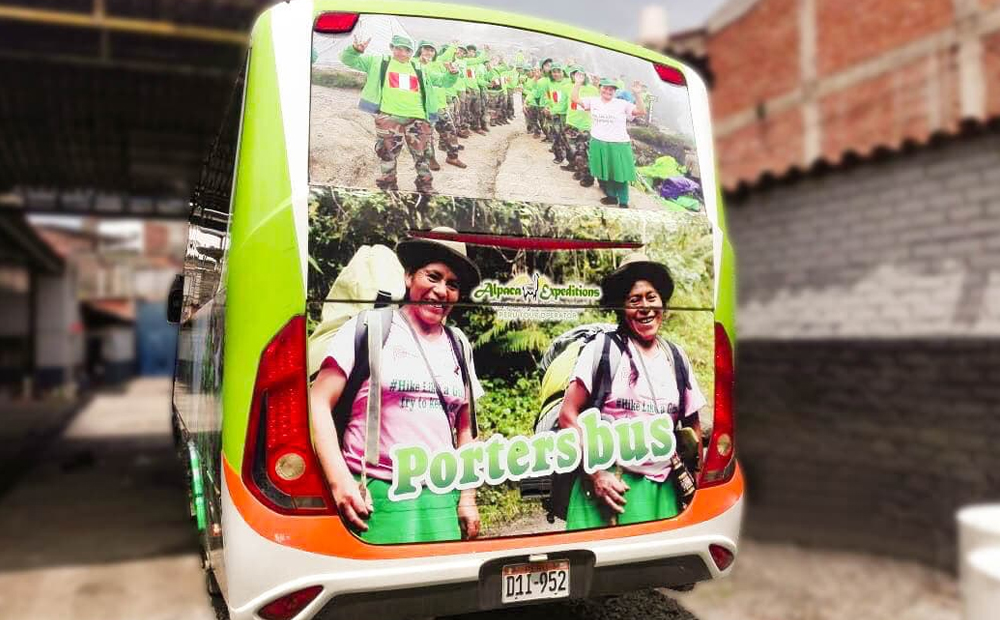
Our Porter’s bus
We treat our porters with the same dignity and respect as we do our clients. Just as our clients enjoy our…
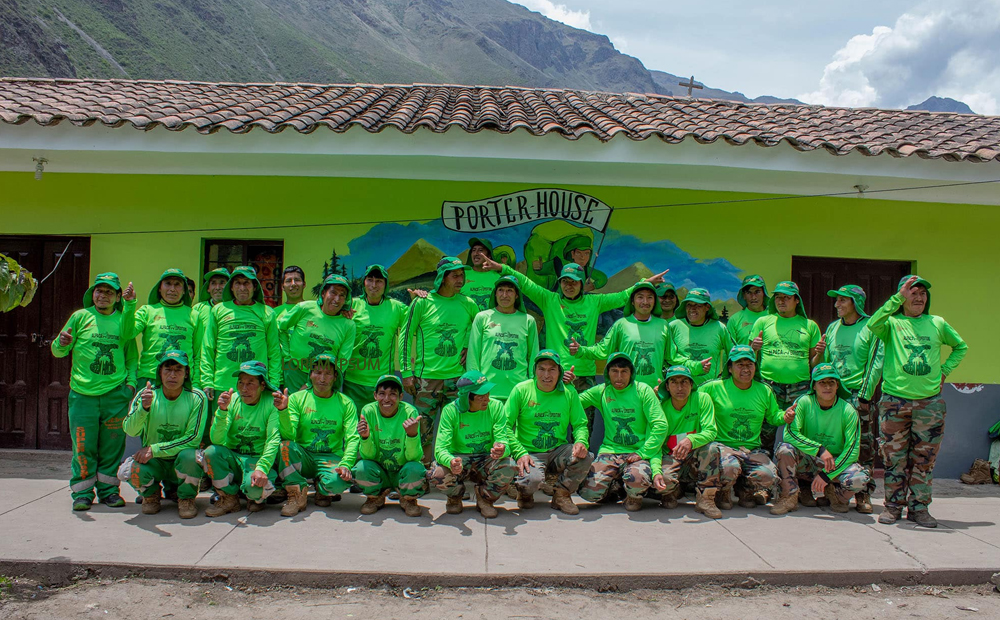
Our Porter’s House
As we mentioned above, our Porters like many Peruvian people come from distant villages to work our treks…
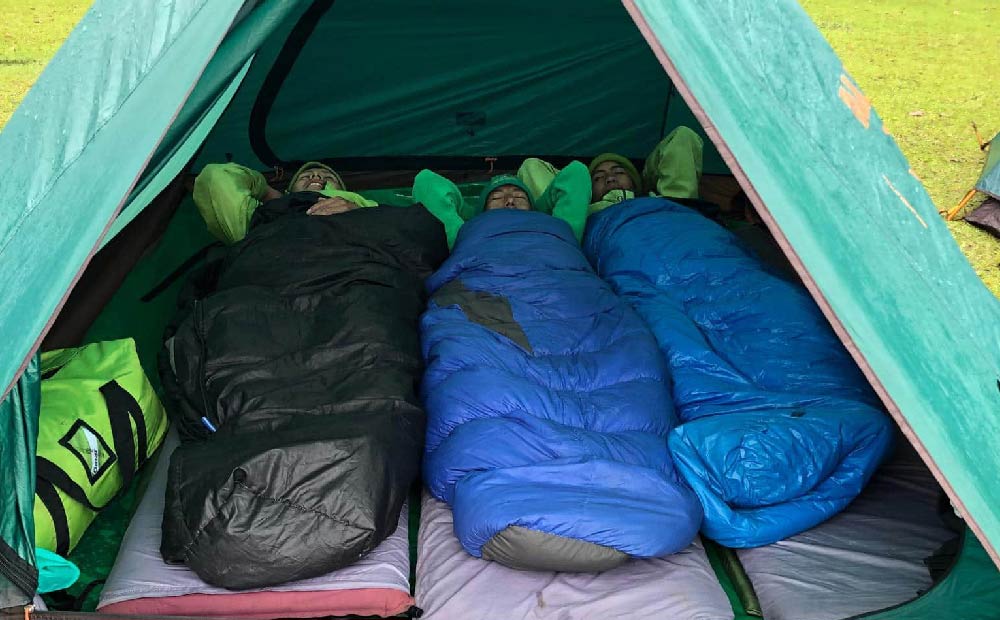
Tents and Sleeping bags
Again, this is something unique that Alpaca Expeditions provides, and sad others are not doing. We supply…
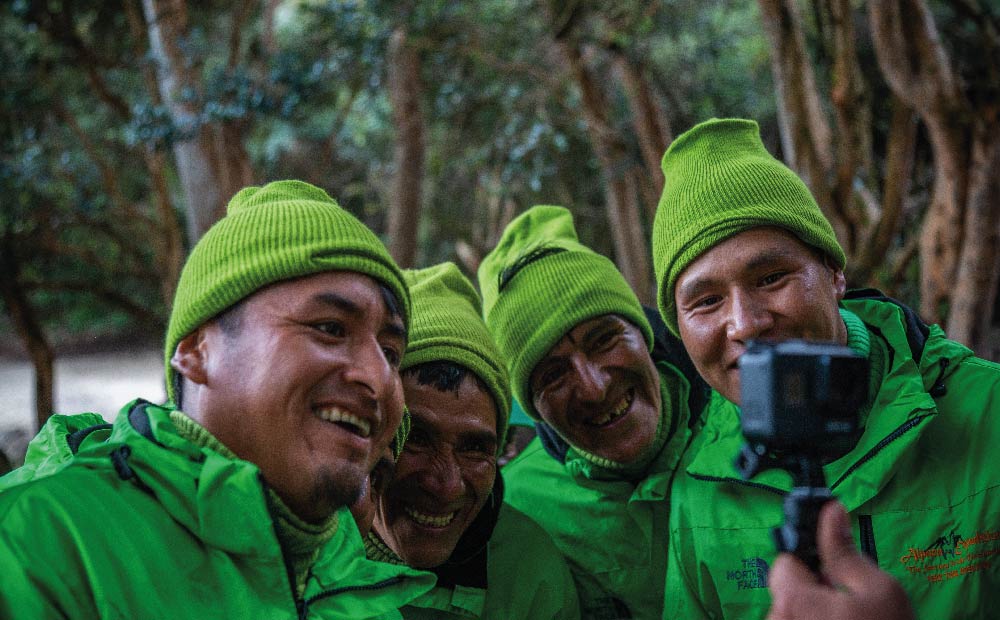
Proper Equipment for our Porters
Every porter of ours receives proper equipment. That includes moisture-wicking long/short sleeve shirts…
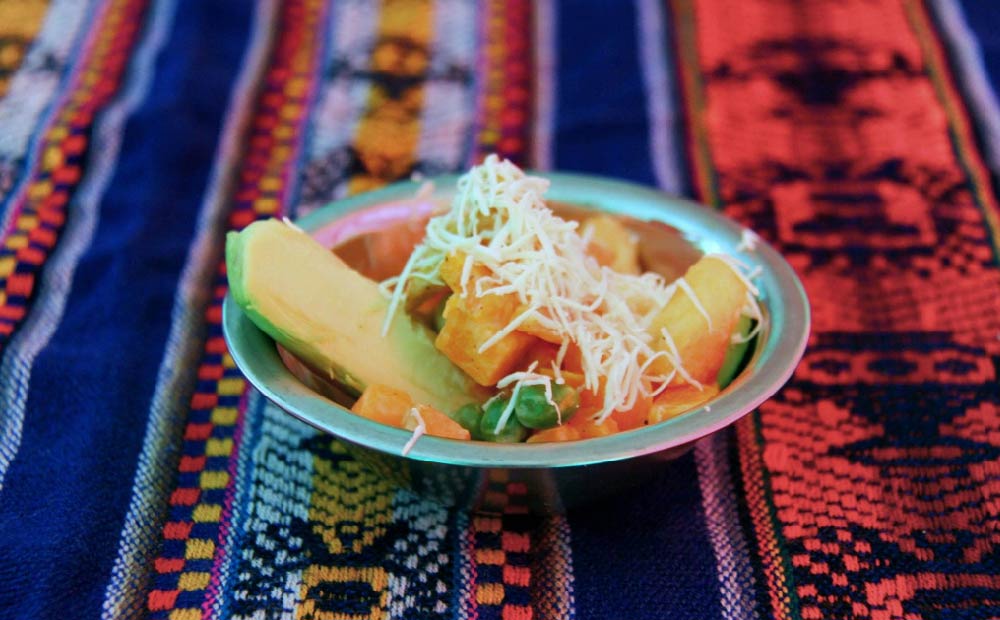
Nutritious Meals for our Porters
A general comment from trekkers on an Alpaca Expeditions tour is that we serve too much food. Well…
Videos of our Porters
Extra information
Alpaca Expeditions is always ready to make your trip safe and as easy as possible for you. Because these trips are a bit more complicated than your typical tour, we have put together some notes on logistics, storage, and even recommendations on where to stay in Cusco. And of course our team is ready to answer any other question, as we promise to be your partner from the moment you first contact us to our last goodbye in Cusco.
Alpaca Expeditions Recognitions
ISO (International Organization for Standardization)
In the pursuit to stand out from the rest, Alpaca Expeditions has obtained four ISOs plus our carbon footprint certificate to date. These achievements result from our efforts to implement the internationally-recognized integrated management system. They also represent our commitment to all of our clients and staff of operating sustainability and responsibility in every way possible.
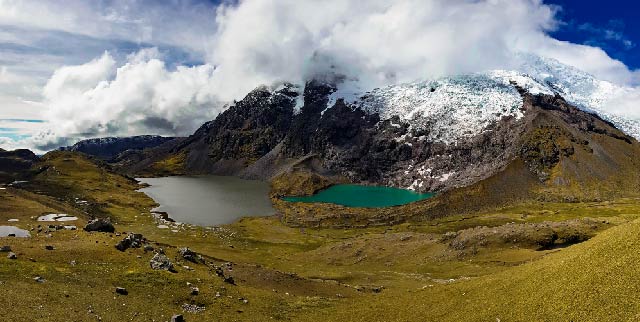
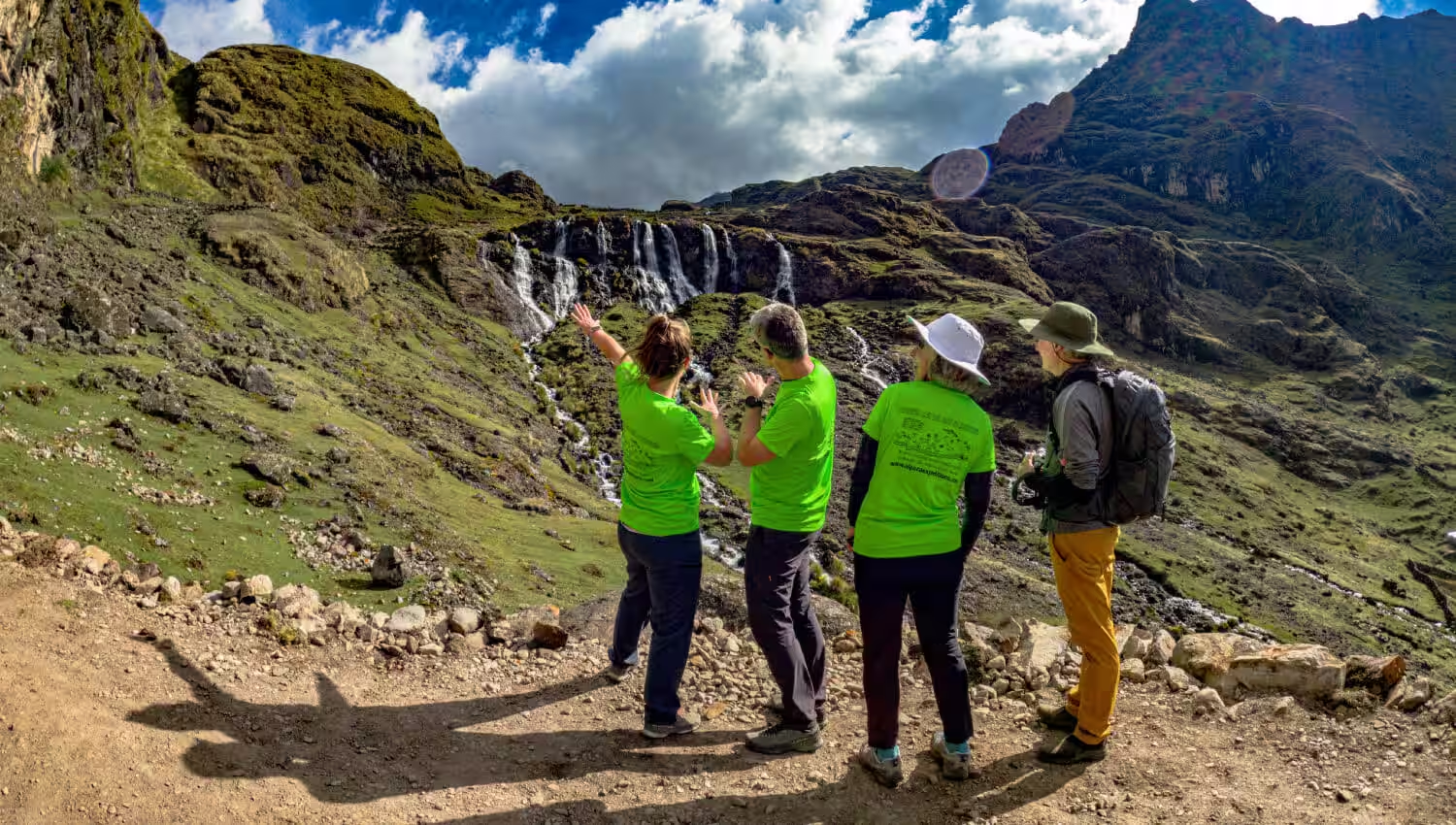
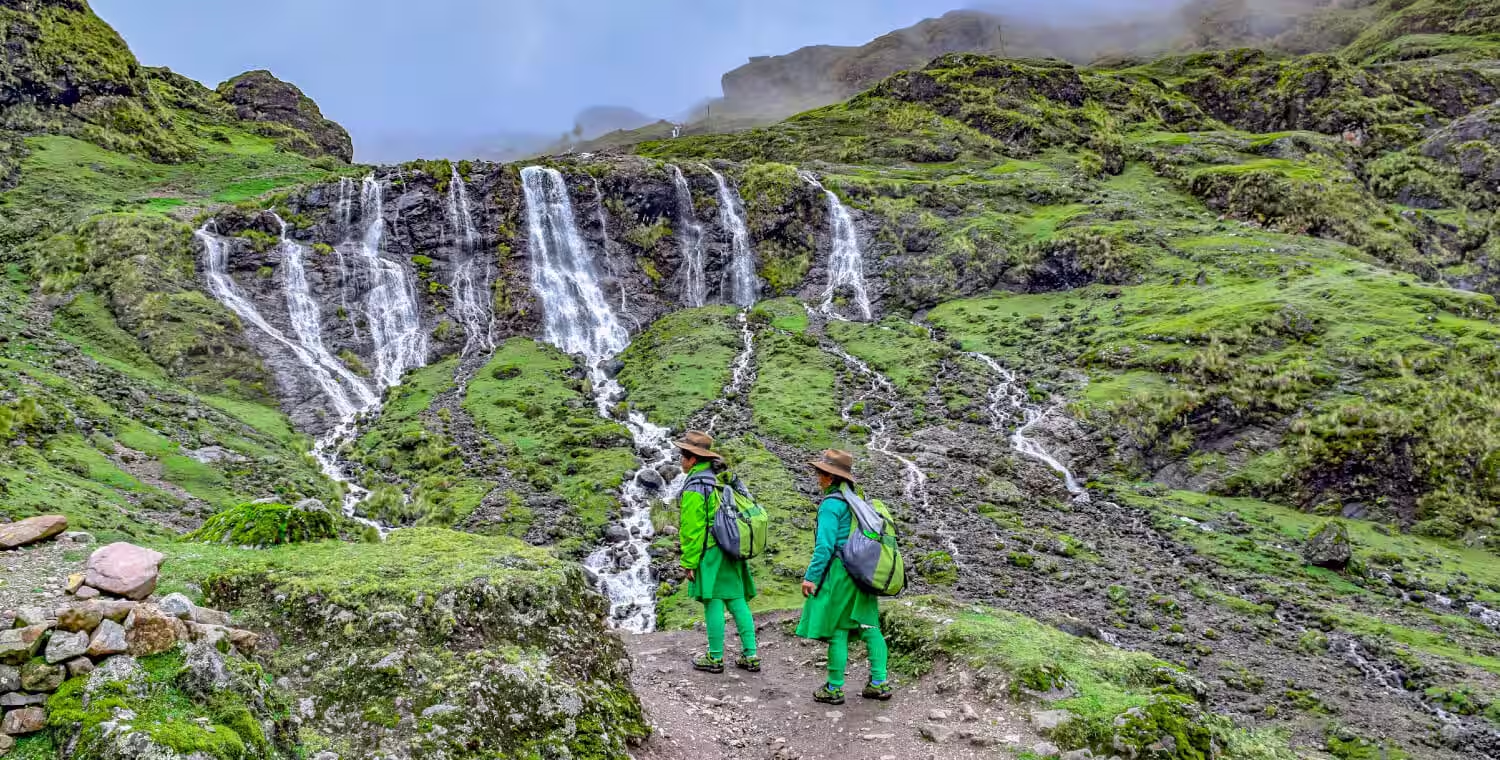

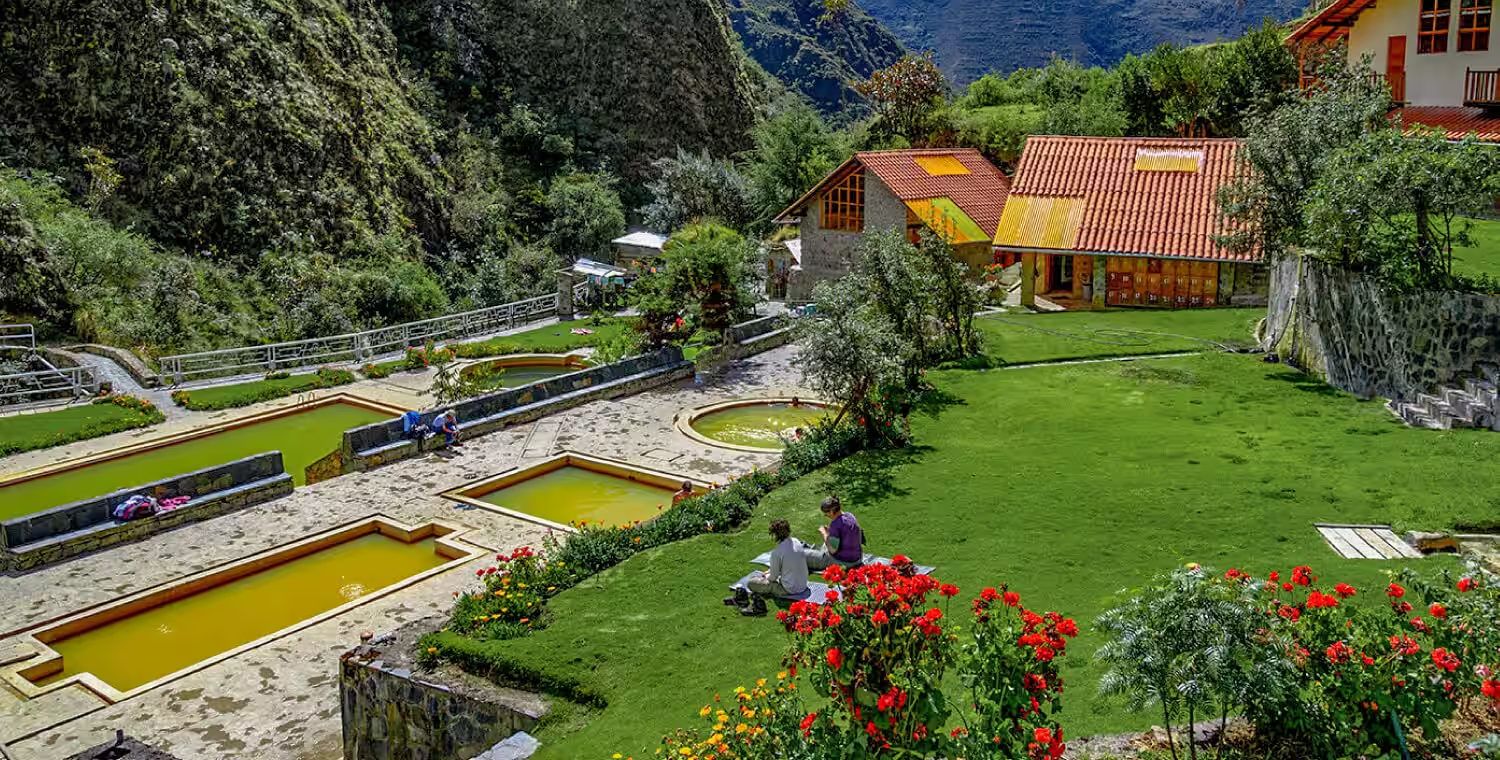
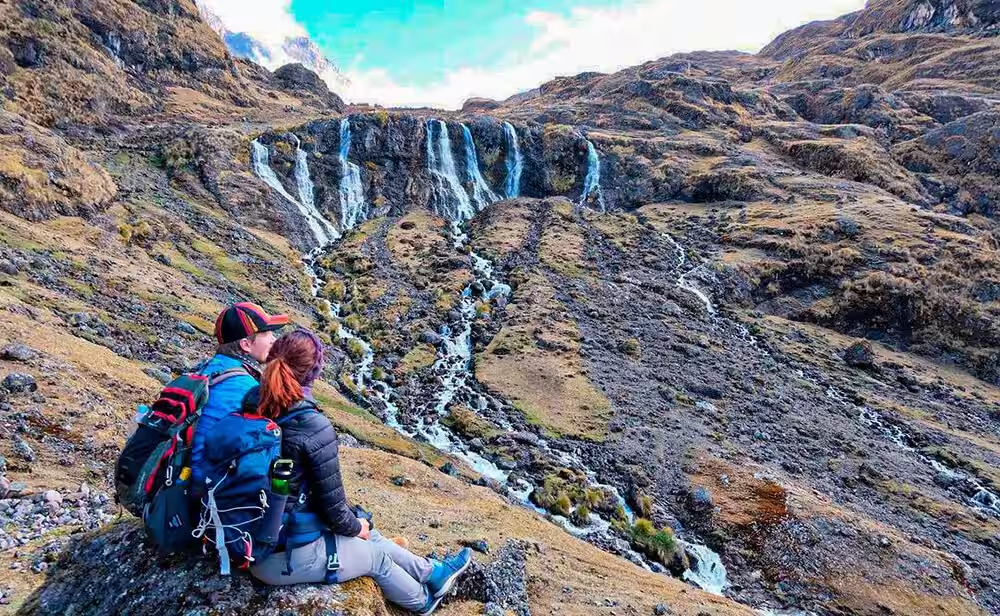
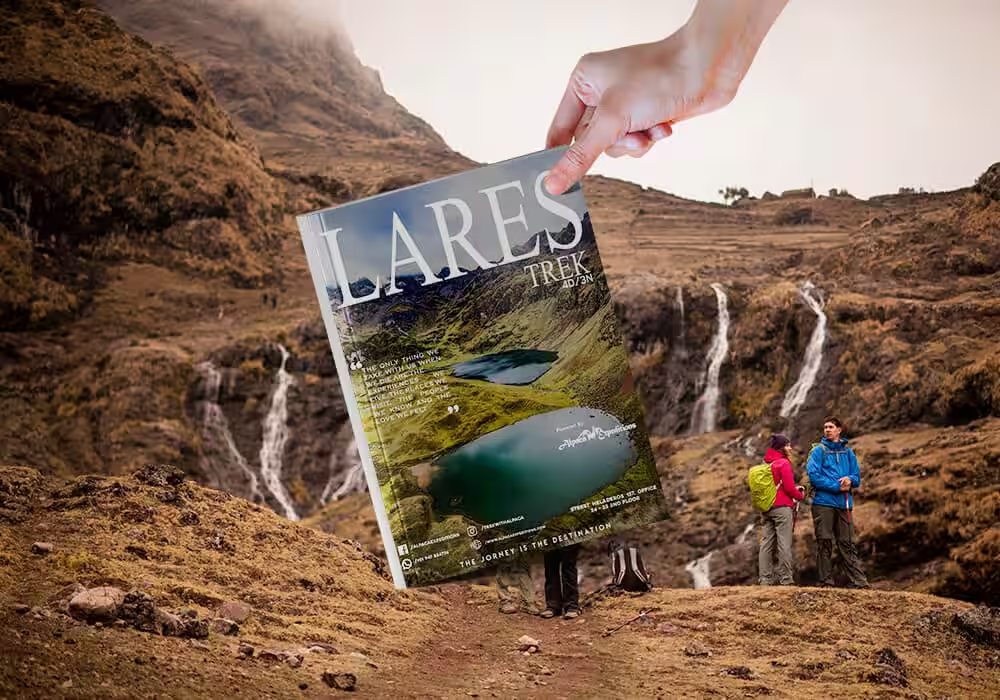
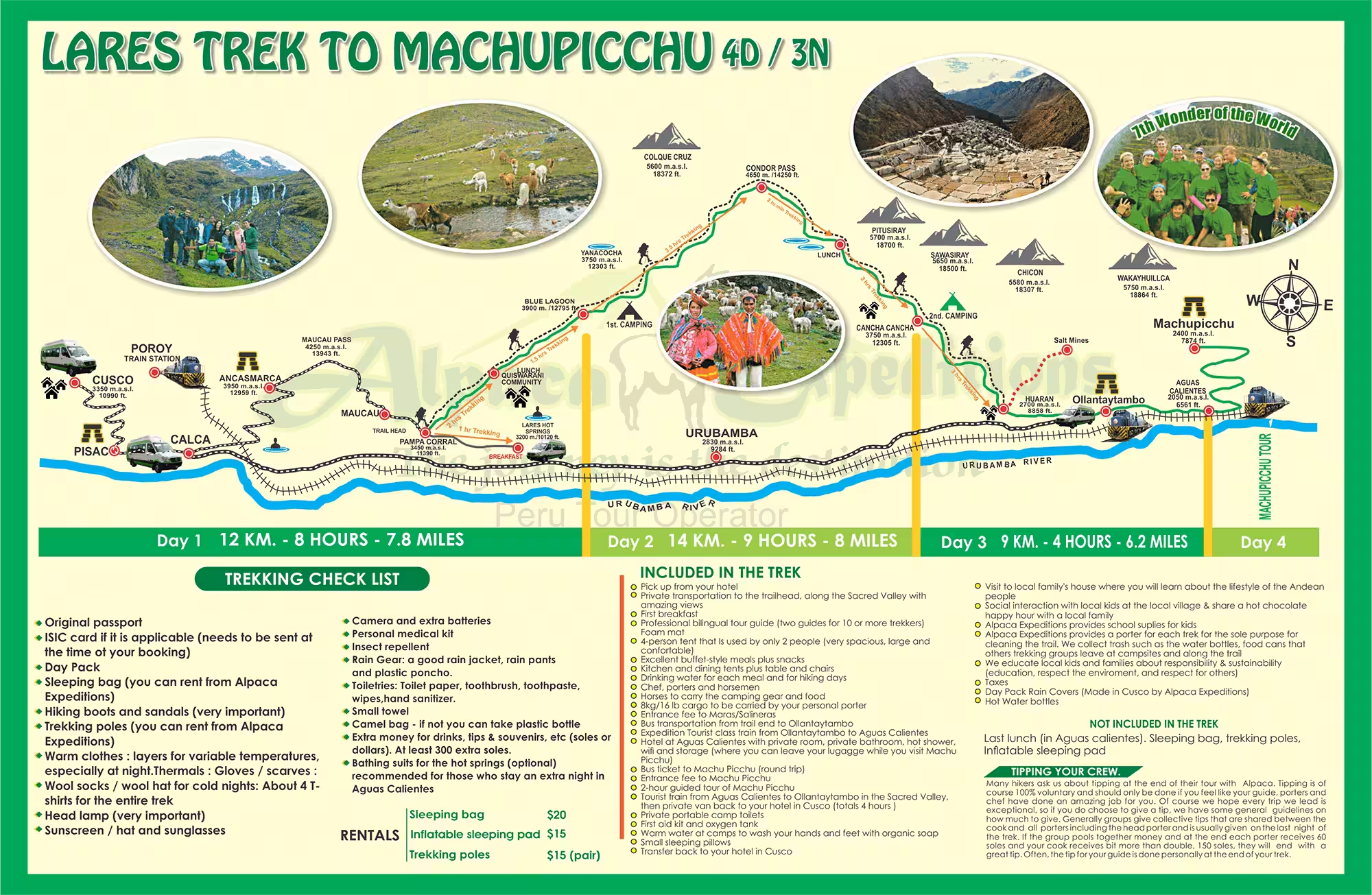

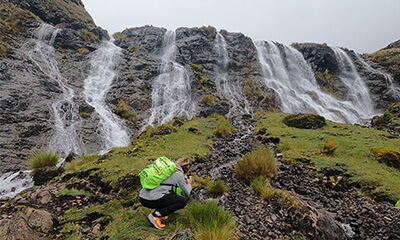
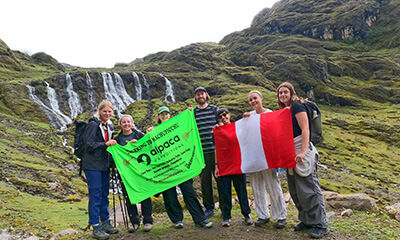
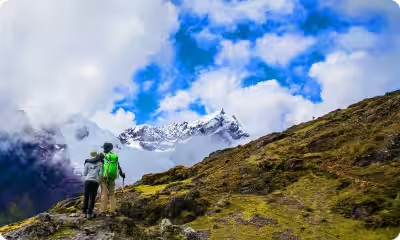
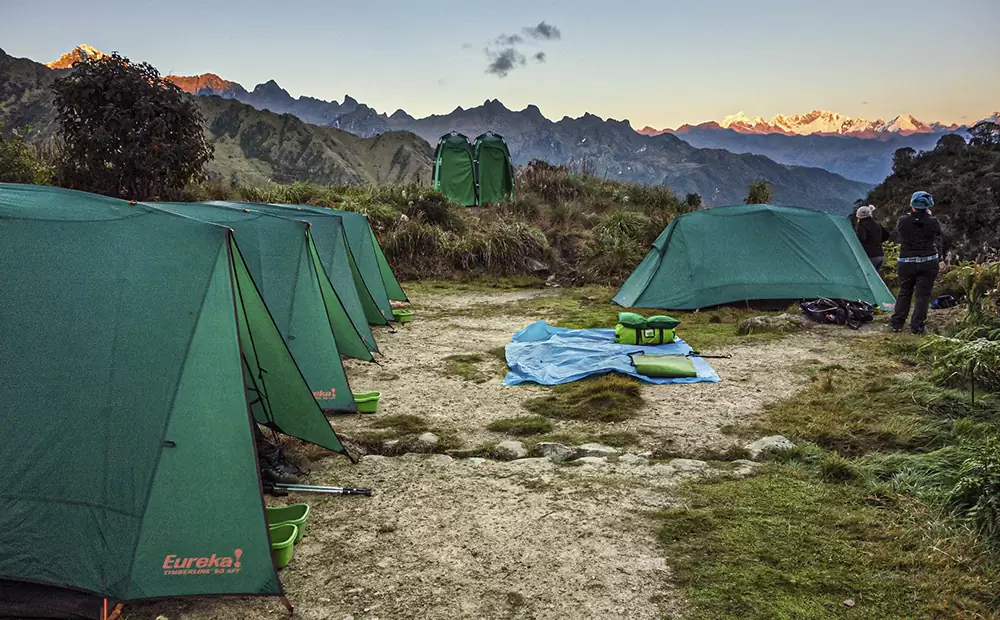
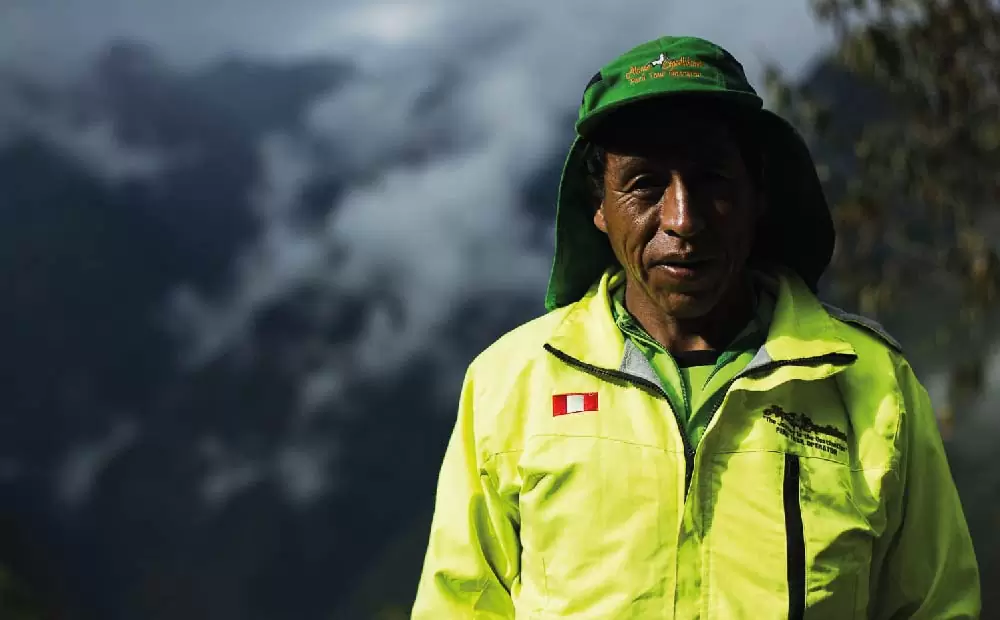
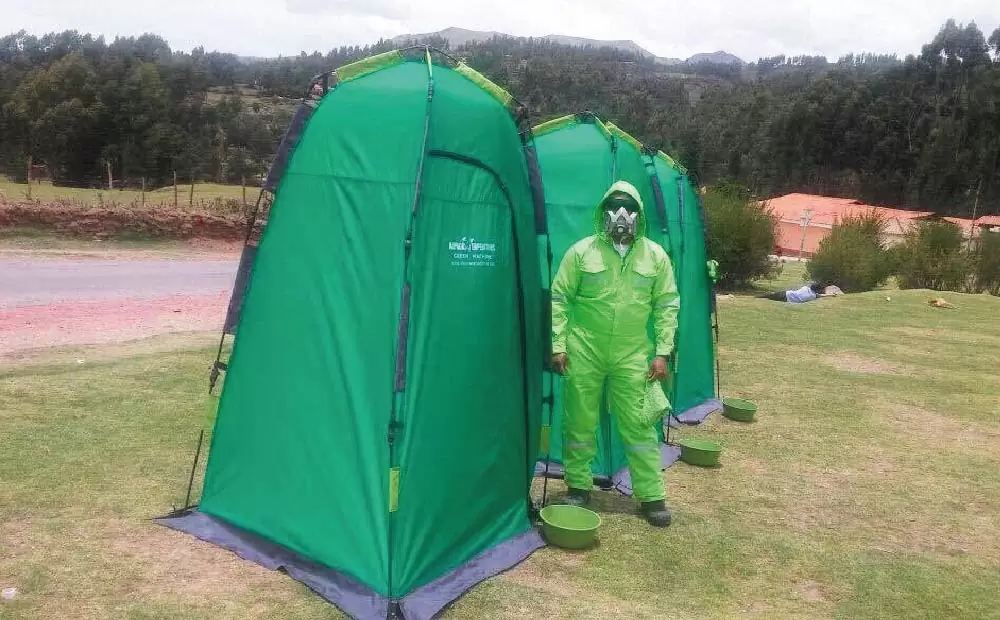
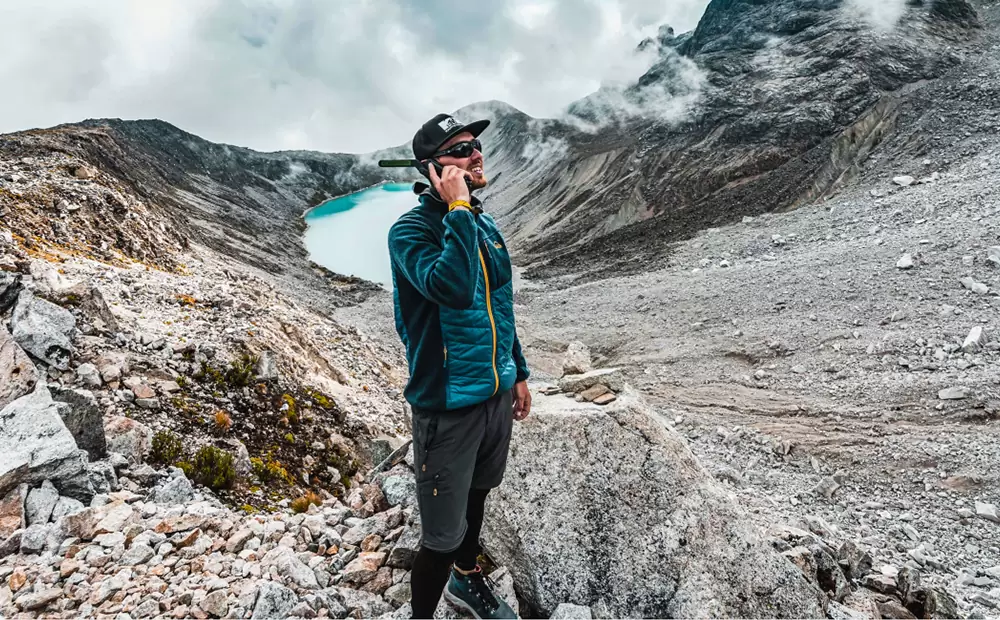
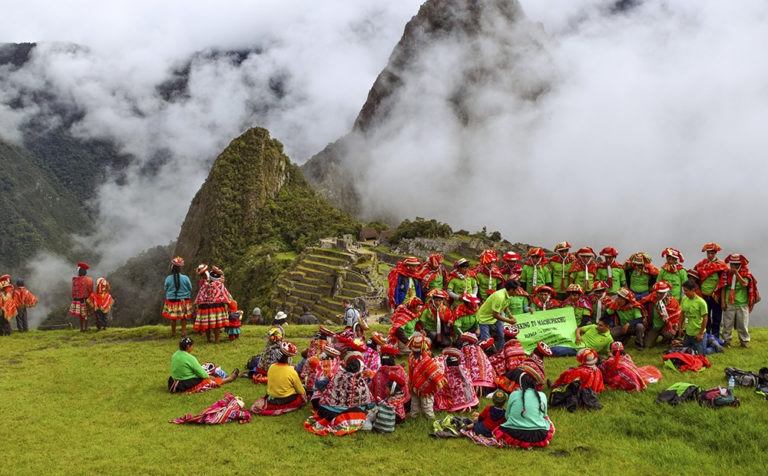
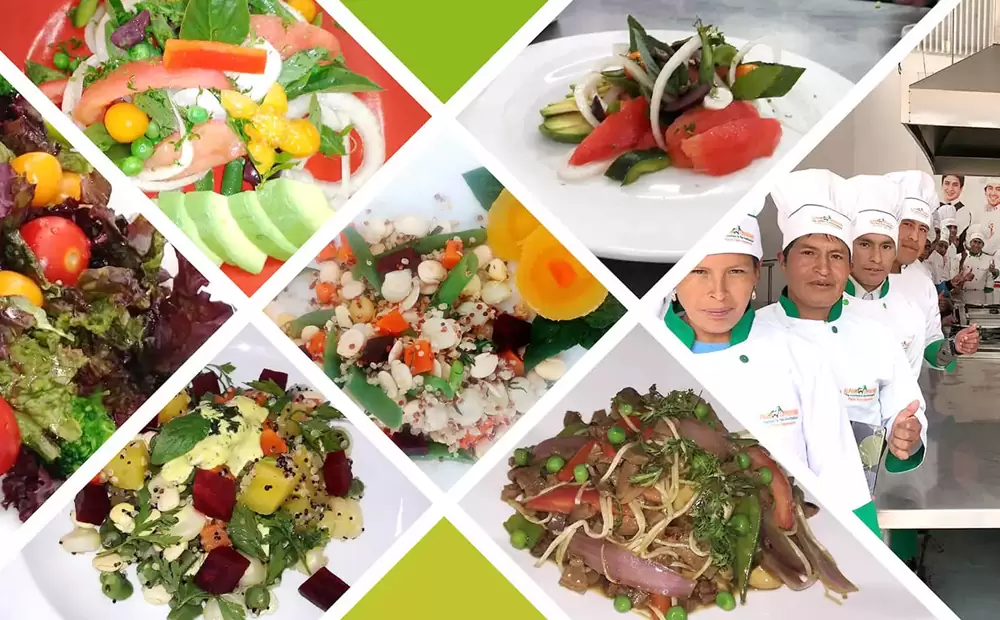
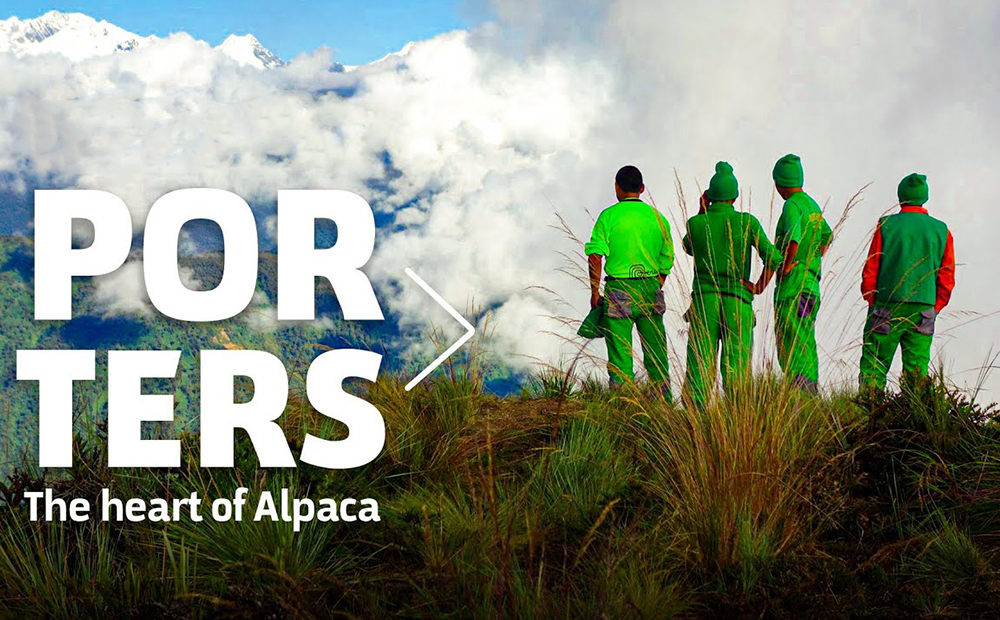
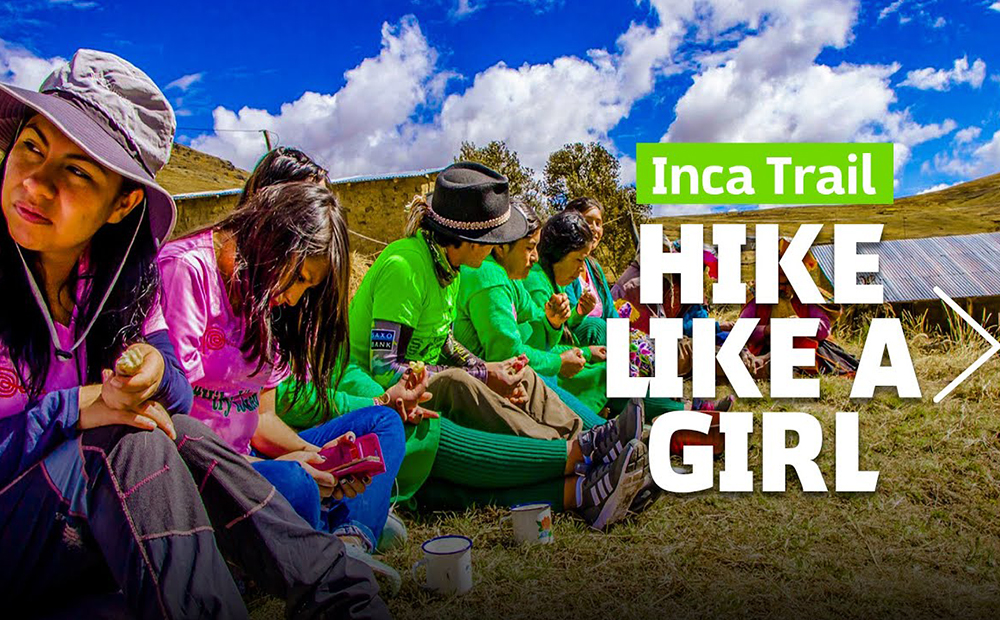
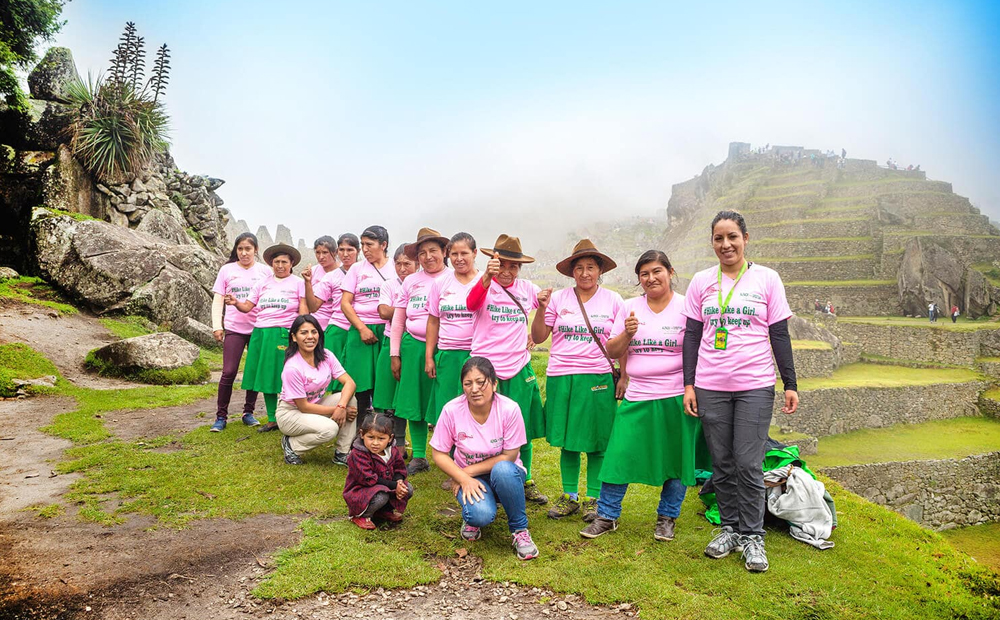
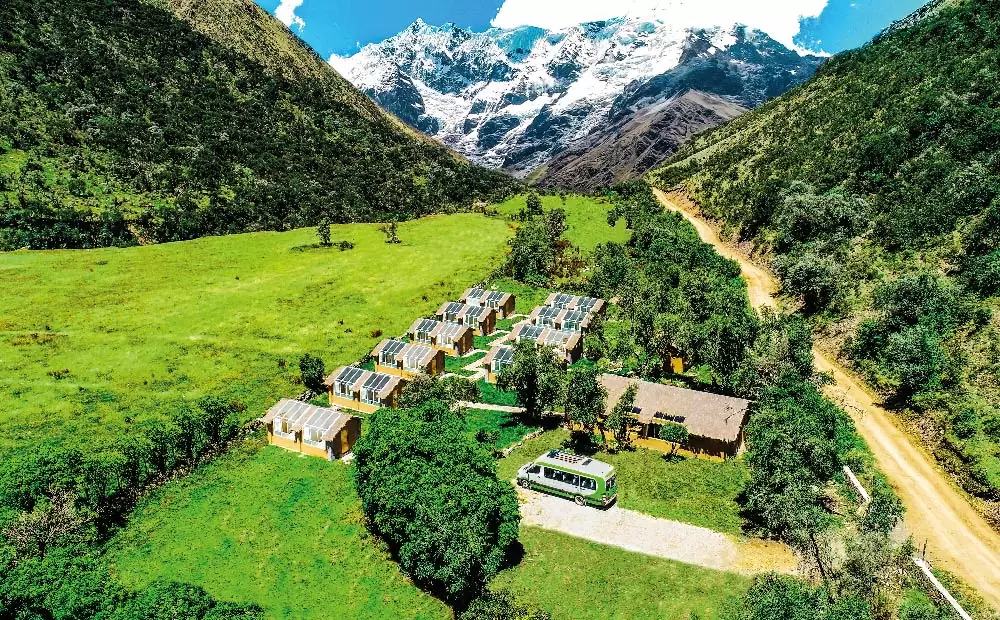
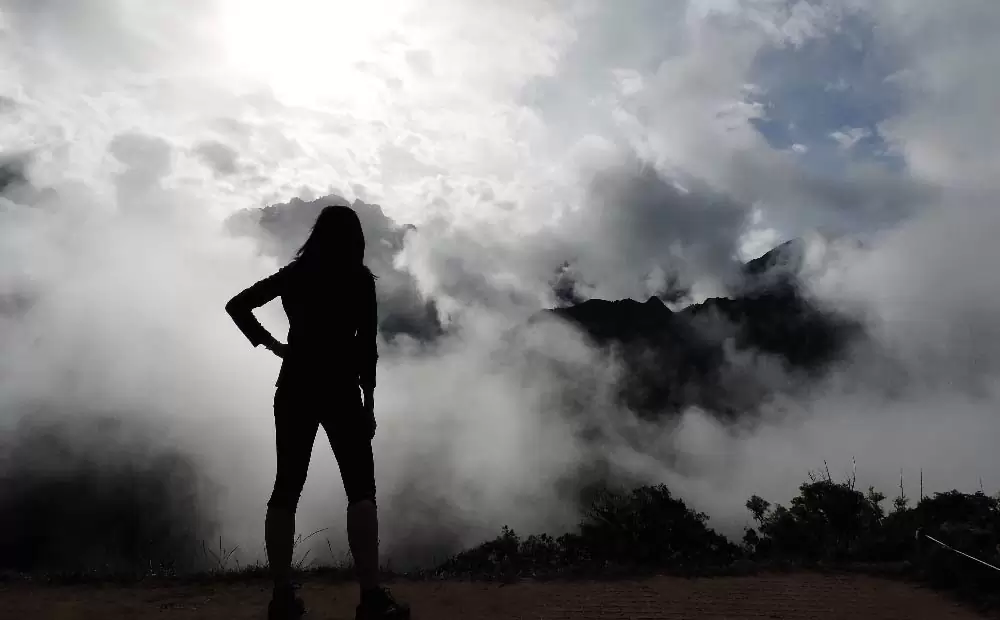
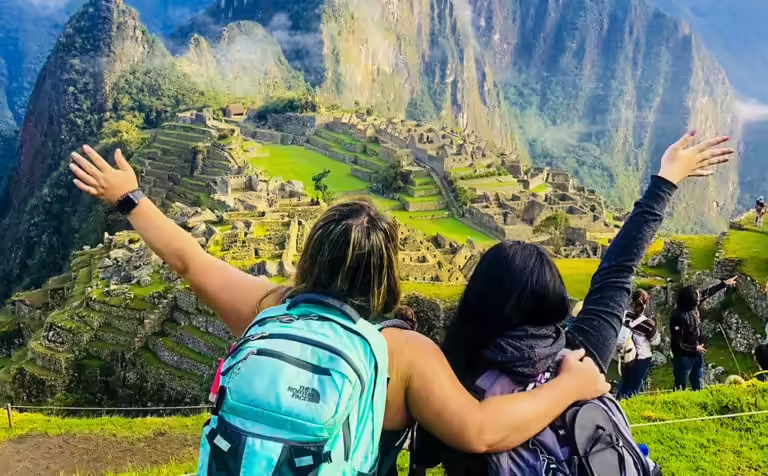
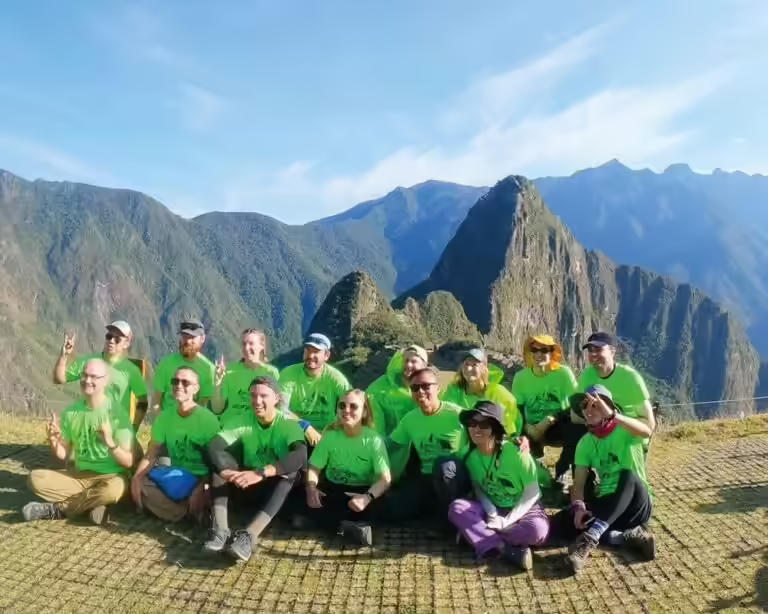
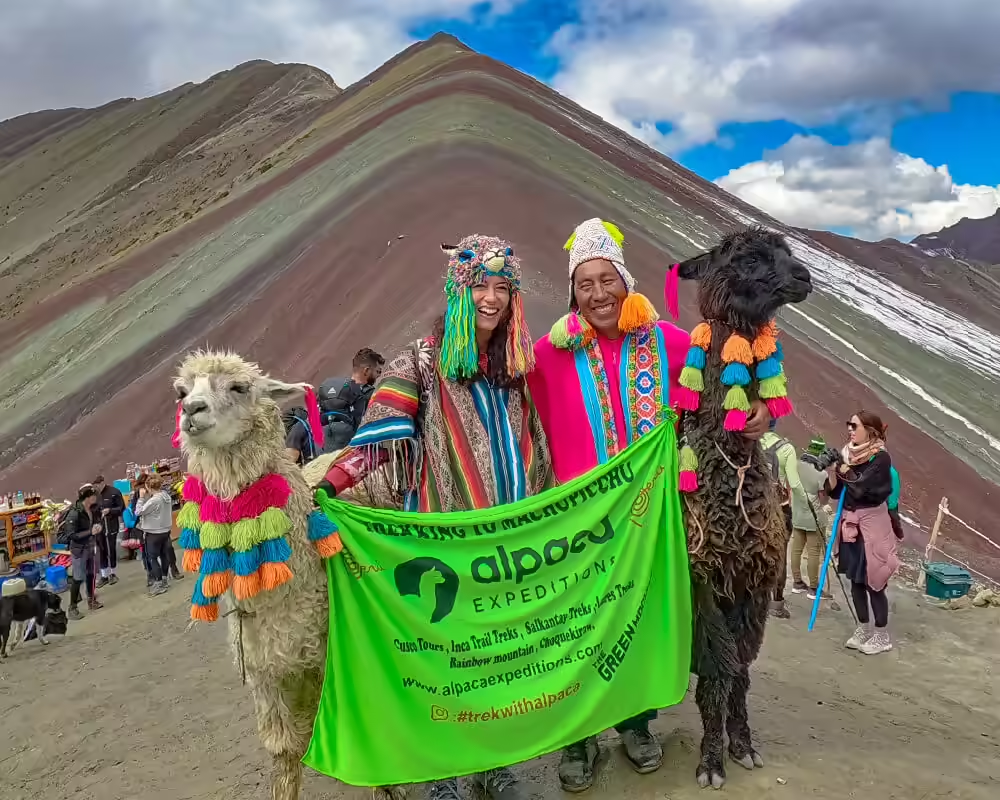
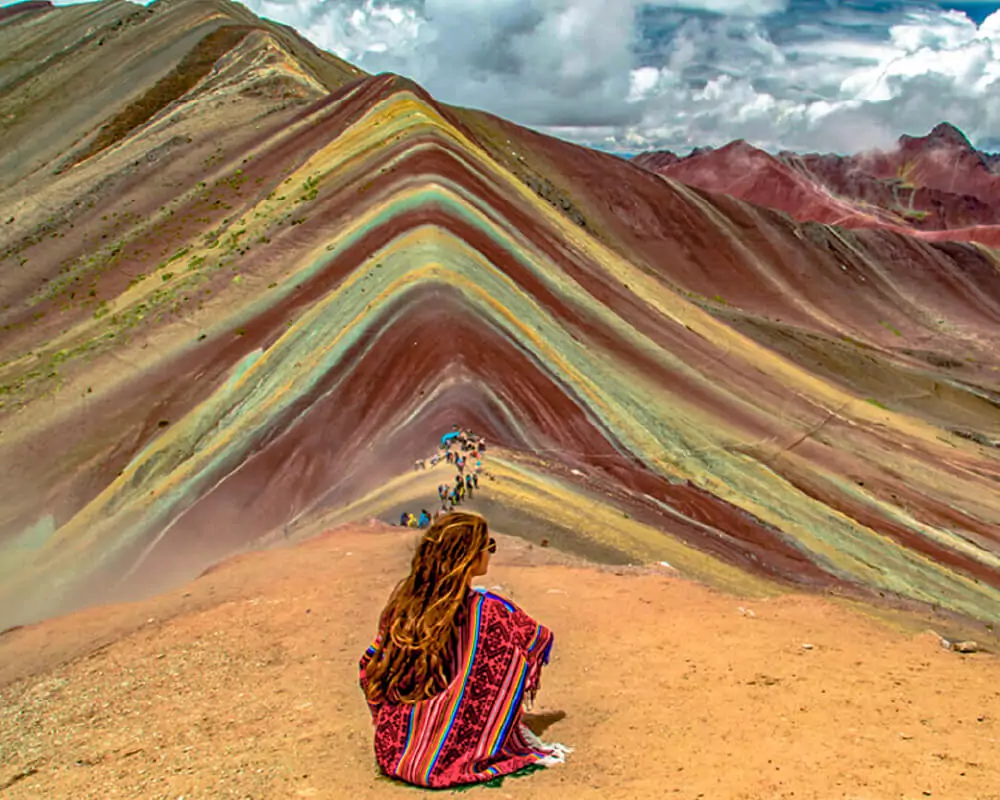
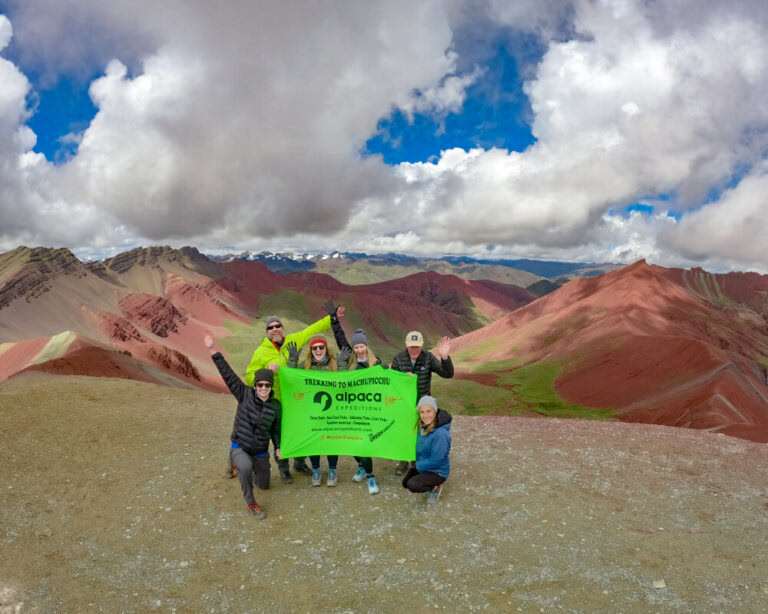
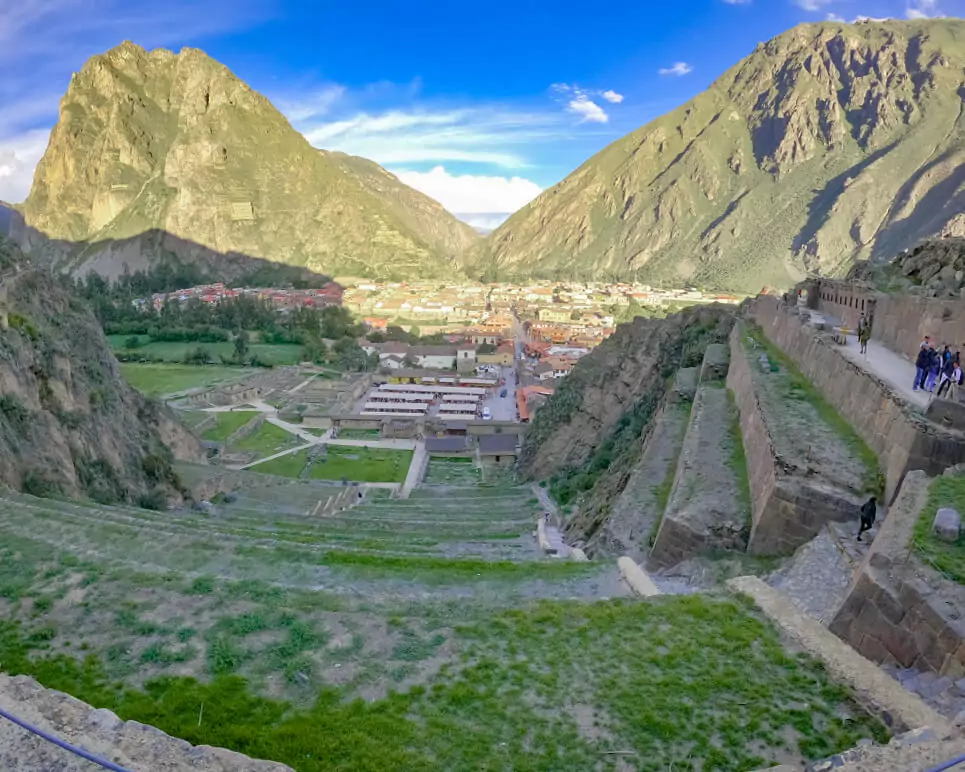
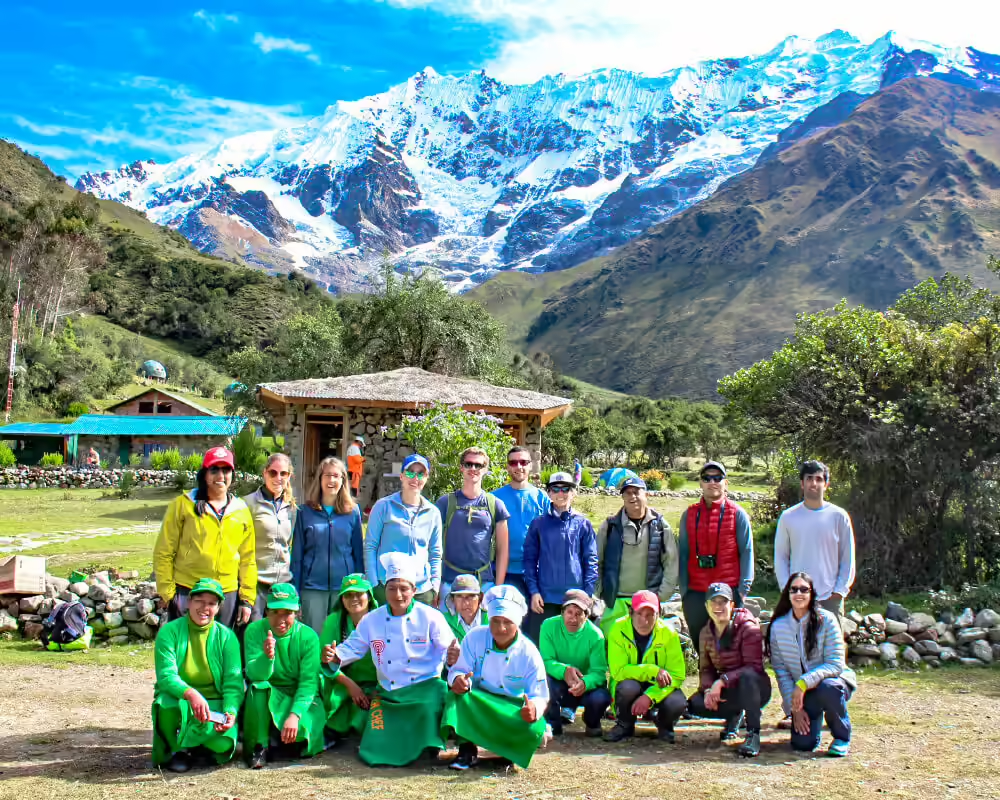
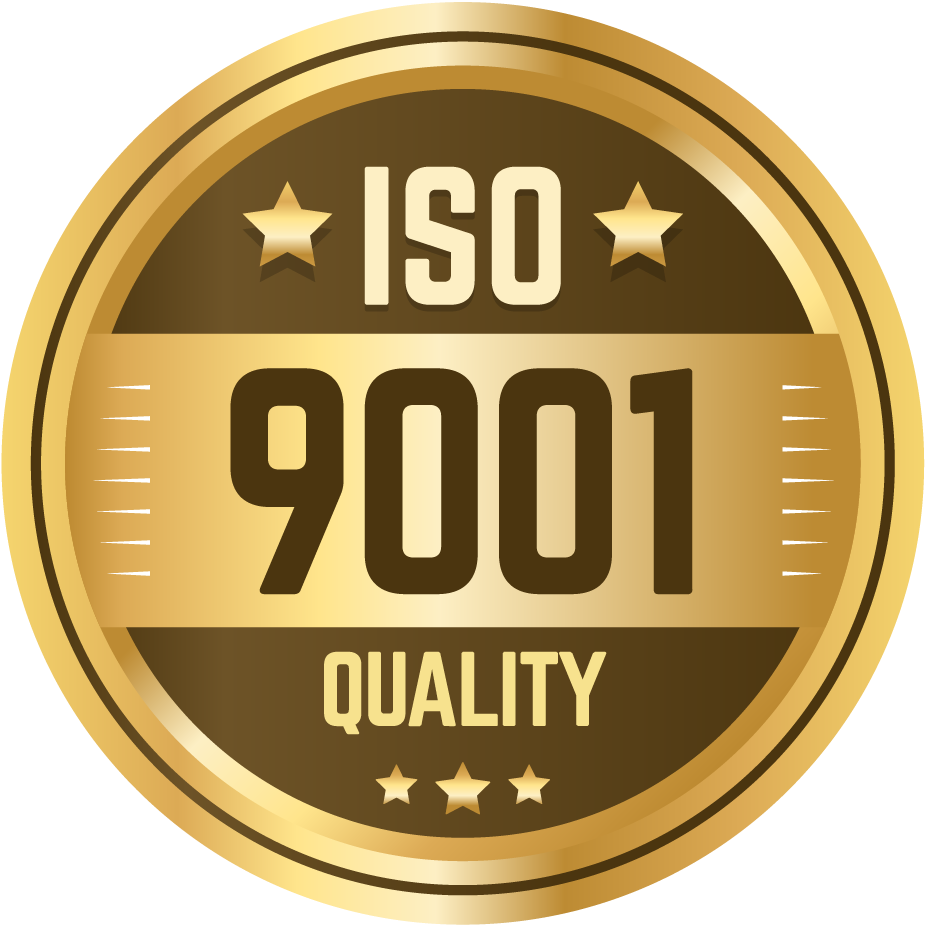

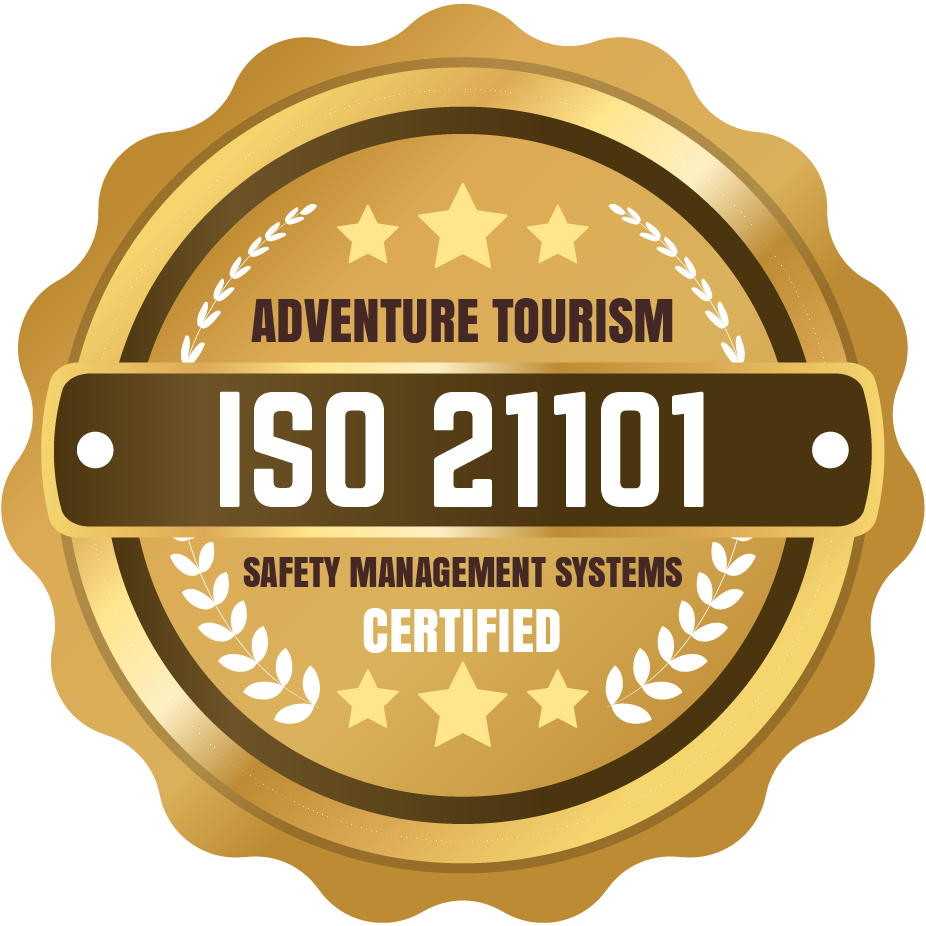
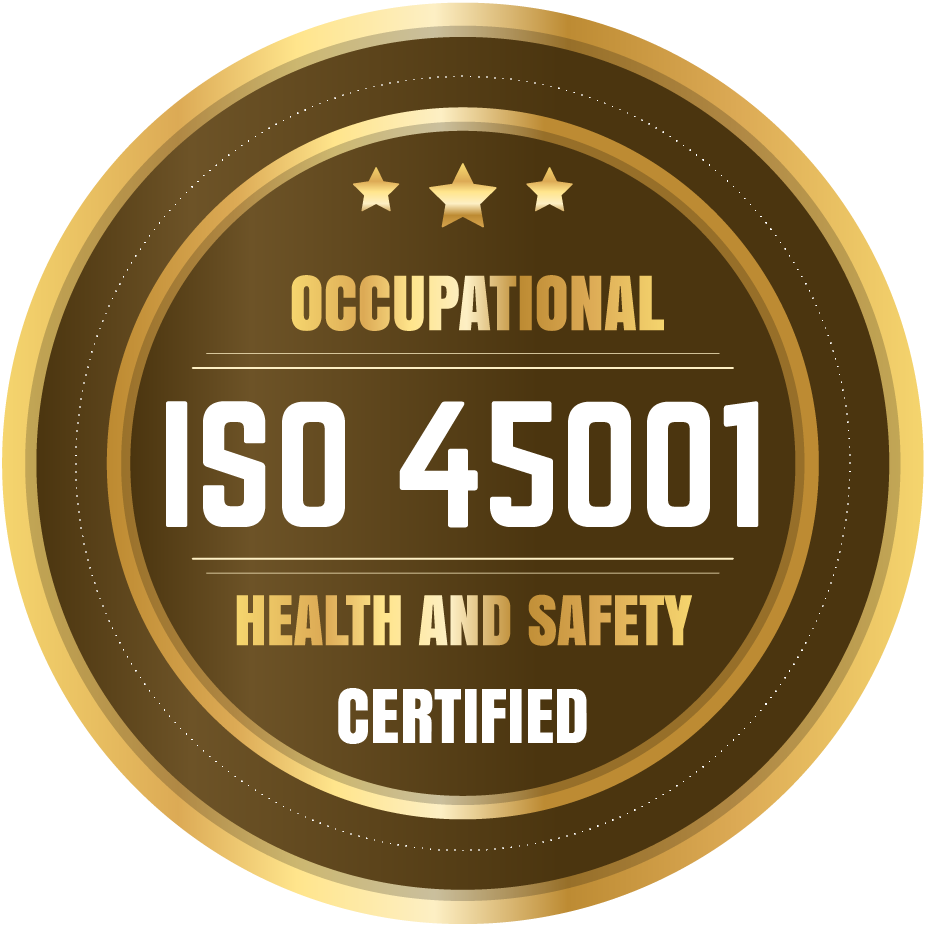
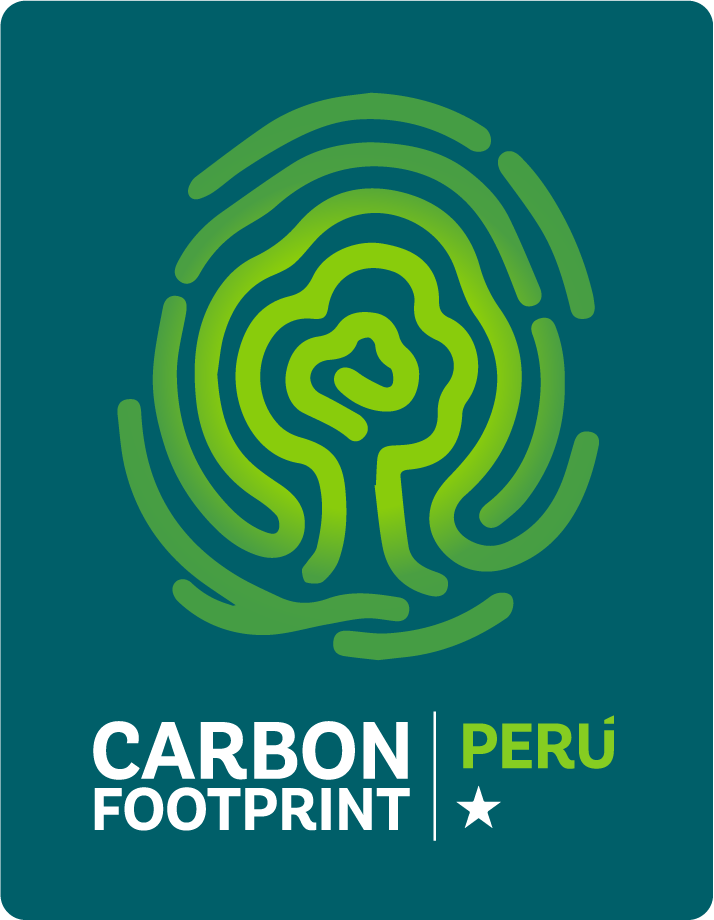
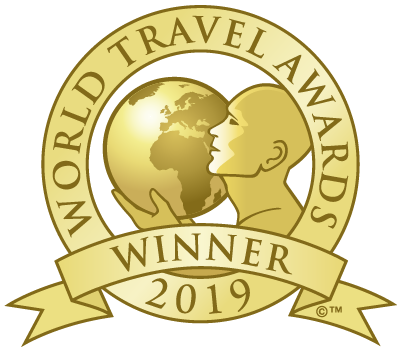
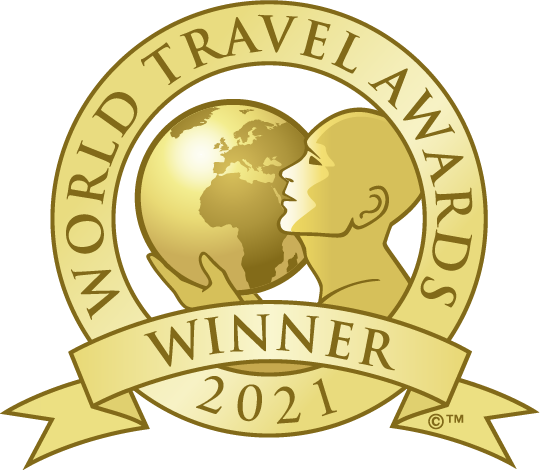





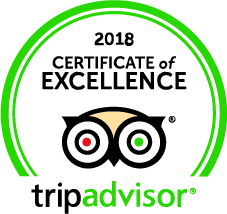
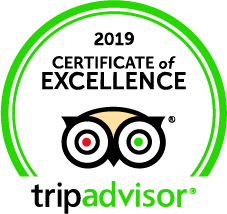
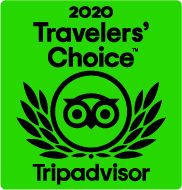
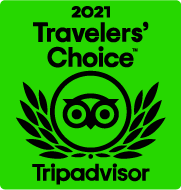
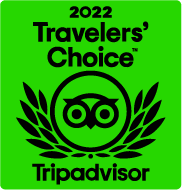
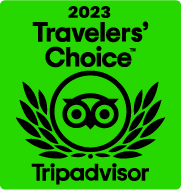
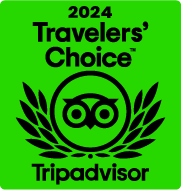












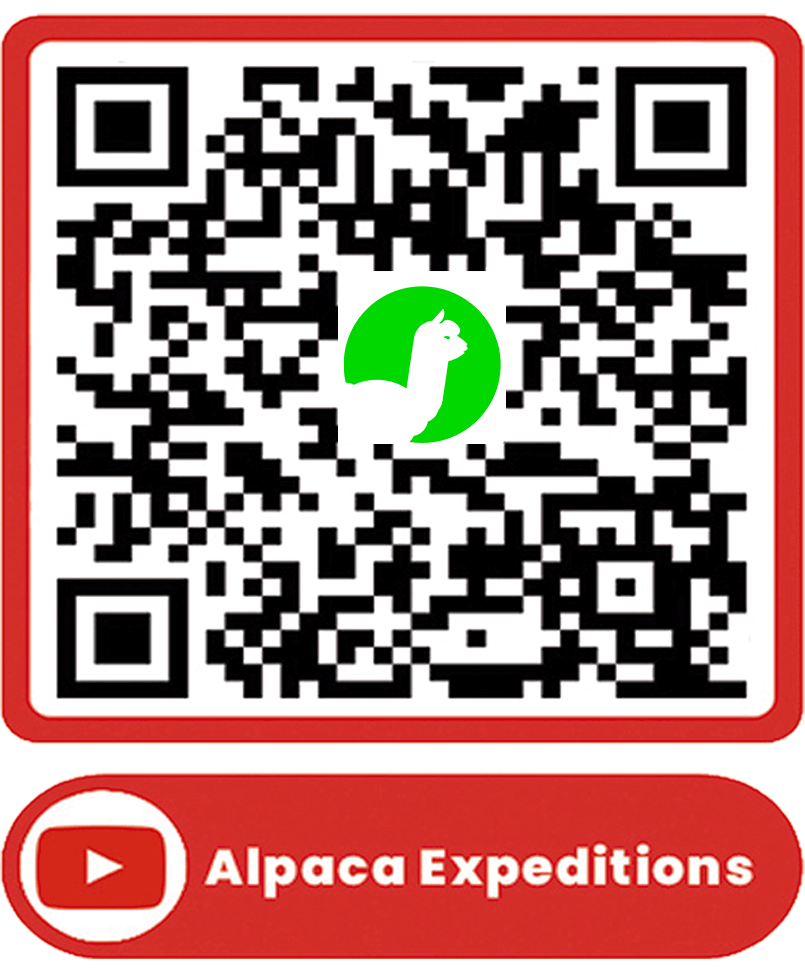

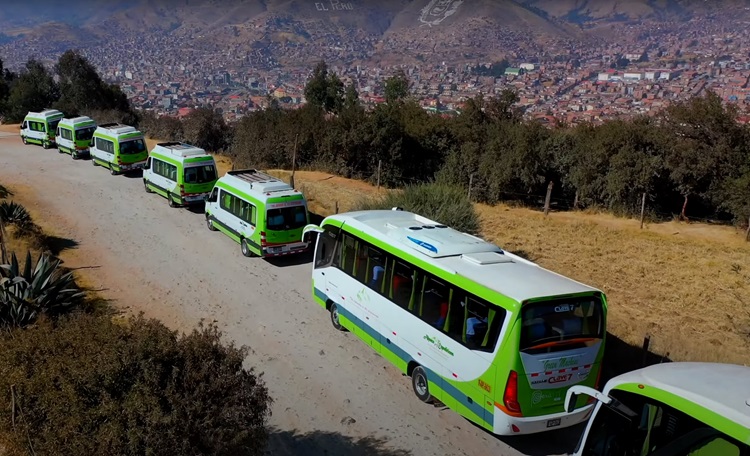
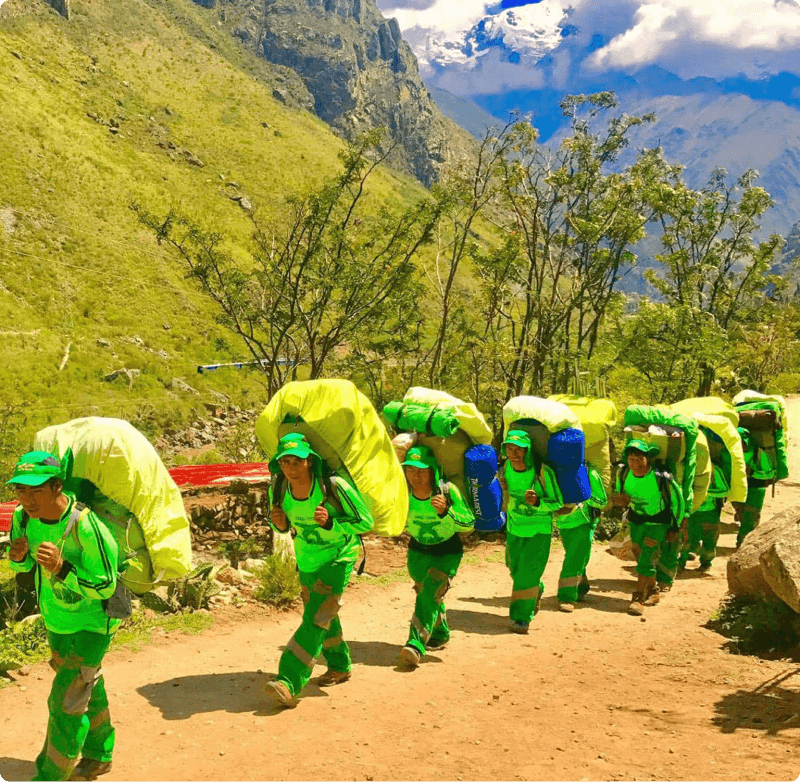 Porters will carry up to 7 kg of your personal items, which must include your sleeping bag and air mat (if you bring or rent one). From us, these two items weigh a combined total of 3.5 kg.
Porters will carry up to 7 kg of your personal items, which must include your sleeping bag and air mat (if you bring or rent one). From us, these two items weigh a combined total of 3.5 kg.